Shows
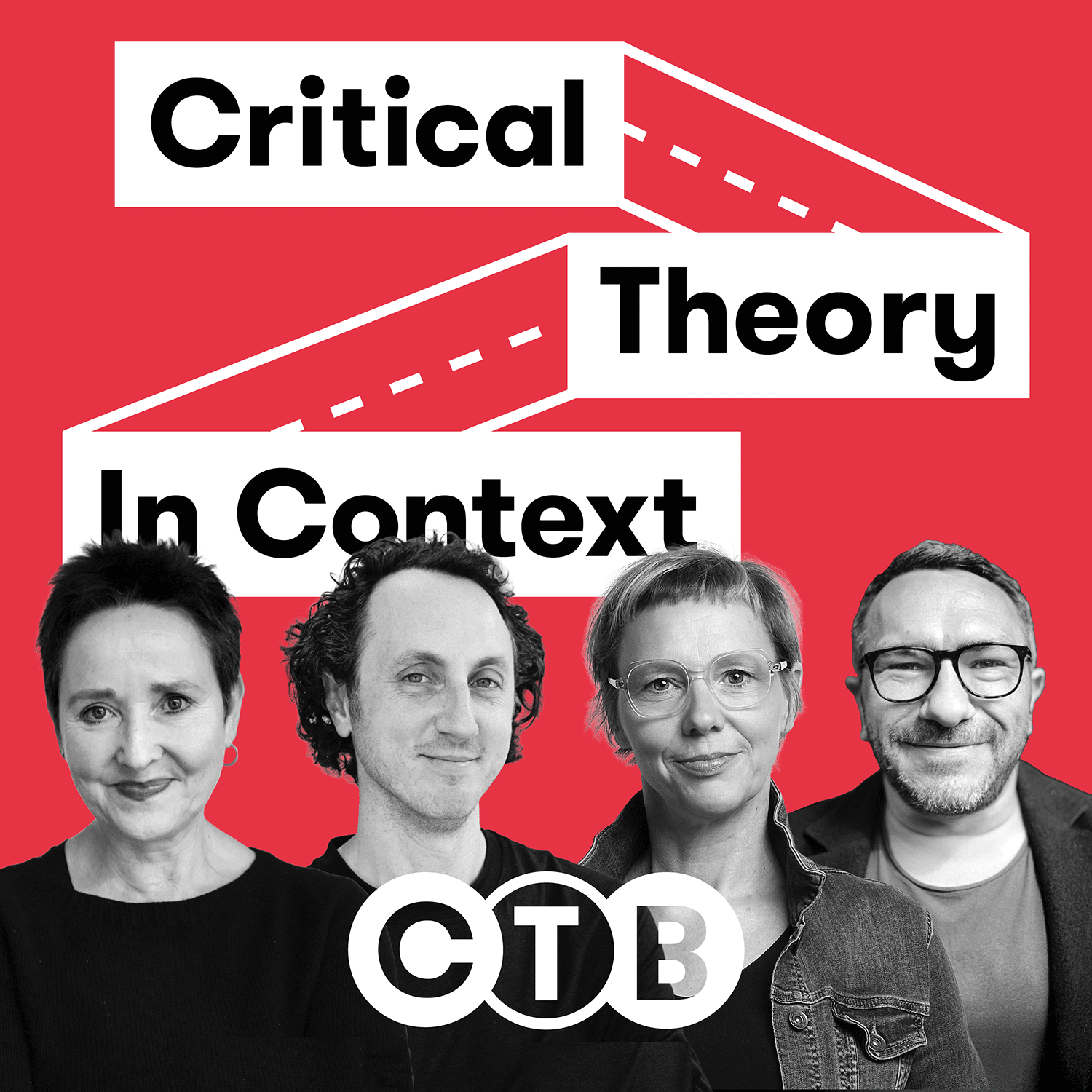
Critical Theory in ContextÜber die „Krise des Rationalen“. Das aktuelle Jahresthema des Centres for Social Critique.In dieser Folge stellen wir die geplanten Aktivitäten des Centres for Social Critique im Jahr 2026 vor. „Die Krise des Rationalen“ ist der diesjährige Fokus. Was für eine Krise ist hier gemeint, welche Veranstaltungen gibt es, auf welche Gäste können wir gespannt sein? Wir geben u.a. einen Ausblick auf die jährlichen Benjamin Lectures: Eingeladen ist der international anerkannte Historiker Dipesh Chakrabarty. Er lehrt an der University of Chicago und ist Gründungsmitglied der Subaltern und Postcolonial Studies. Für ihn offenbart das „planetarische Bewusstsein“ die Grenzen des Konzepts „Nationalstaat“ und die ambivalente Rolle der modernen Technologie...
2026-01-3051 min
Chercheur.esL'appropriation culturelle n'est pas ce que tu crois | Khémaïs Ben LakdharL’appropriation culturelle n’est pas ce que vous croyez. Dans cet épisode de Chercheur·es, l’historien de la mode Khémais Ben Lakhdar démonte un débat souvent réduit à des polémiques individuelles pour révéler ce qu’il cache vraiment : un système économique, colonial et culturel qui structure encore aujourd’hui l’industrie du luxe.Pourquoi un vêtement porté par une personne racisée peut être perçu comme “traditionnel”, alors que la même pièce sur un podium parisien devient “le comble du chic” ? Comment la haute couture s’est-elle construite...
2025-12-091h 04
House of Modern HistoryZeitlichkeiten und Klimakrise mit Achim LandwehrAllein unterschiedliche Kalendersystem zeigen es schon: Es gibt unterschiedliche Vorstellungen von Zeitlichkeiten. Unterschiedliche Kulturen und Kollektive haben unterschiedliche Zeitvorstellungen. Wir haben heute einen Gast, der sich schon lange mit Zeittheorien und Zeitlichkeiten auseinandersetzt: Achim Landwehr. Explizit sprechen wir mit ihm über sein neues Buch Zeiten haben. In dem er sich speziell mit Zeiten und Zeitlichkeiten im Kontext der Klimakrise und des Anthropozän und der aktuellen Polykrisen auseinandersetzt.Wir sprechen darüber wie viel immaterielles in Form von Zeiten in einer Plastikflasche steckt undMit der Industriemoderne geht ein dominierendes Konzept von Zeitlichkeit einher. Aber wir brauchen ein...
2025-07-2455 min.png)
Vergangenheitsformen - Der Redaktionspodcast von HSozKultSüdosteuropa in der Europäischen GeschichteSüdosteuropa ist eine ausgesprochen interessante und vielfältige europäische Region. In ihrer Geschichte verdichten sich die großen Entwicklungen der europäischen Moderne - und gleichzeitig galt Südosteuropa selbst in unserem Fach immer wieder als "das Andere" im Innern Europas. Warum ist das so, was können wir daraus lernen und was daran macht ein Studium der südosteuropäischen Geschichte so fruchtbar? Darüber spricht Claudia Prinz mit Hannes Grandits und Ruža Fotiadis von der Professur für Südosteuropäische Geschichte am Institut für Geschichtswissenschaften der Humboldt-Universität zu Berlin.
Zu den Personen
2025-05-3036 minHaymarket Books LiveWho's Afraid of Gender? Judith Butler in Conversation with Lisa WedeenJoin Judith Butler and Lisa Wedeen for a bold and essential conversation of how a fear of gender is fueling reactionary politics around the world.Judith Butler, the groundbreaking thinker whose iconic book Gender Trouble redefined how we think about gender and sexuality, confronts the attacks on “gender” that have become central to right-wing movements today. Global networks have formed “anti–gender ideology movements” that are dedicated to circulating a fantasy that gender is a dangerous, perhaps diabolical, threat to families, local cultures, civilization—and even “man” himself. Inflamed by the rhetoric of public figures, this movement has sought to nu...
2025-05-011h 18
Fetch the Smelling SaltsMangal Pandey: The Rising (2005 Movie)Join Kim and Alice as we travel back to India circa 1857 courtesy of epic historical legend, Mangal Pandey: The Rising. Back when companies had armies, dogs ate gunpowder and real men sang plot points whilst sitting on elephants.Sound Engineer: Keith NagleEditor: Helen Hamilton / Keith NagleProducer: Helen HamiltonSourcesMangal Pandey: Film and History; Author(s): Rochona Majumdar and Dipesh Chakrabarty; Source: Economic and Political Weekly , May 12-18, 2007, Vol. 42, No. 19 (May 12-18,2007), pp. 1771-1778Mangal Pandey: Drug-crazed Fanatic Or Canny Revolutionary?; Author: Richard...
2025-03-131h 04
Universo Generalista#132b - Teoria da Decolonialidade e Descolonização Intelectual na África (Kavish Chetty - áudio PT-BR)Kavish Chetty é estudante de doutorado no Departamento de Estudos Literários Ingleses da Universidade da Cidade do Cabo, África do Sul. Seus interesses de pesquisa incluem literatura africana e a história da descolonização intelectual na África. Ele trabalhou como jornalista cultural por muitos anos, mais recentemente como crítico de cinema do Sunday Times.*** Apoie o Canal ***Apoio mensal:https://apoia.se/podcastuniversogeneralistaPIX: universogeneralista@gmail.com*** Referências ***Lista de pensadores mencionados (em ordem alfabética):Aija...
2025-02-122h 41
Dichtung & WahrheitFriedrich von Borries, wie können wir Architektur neu denken?In dieser Folge von »Dichtung & Wahrheit« spricht Annika von Taube mit Friedrich von Borries über sein Buch »Architektur im Anthropozän« und über die doppelte Rolle der Architektur: als Ursache von Krisen sowie als Teil ihrer Lösung. Der Architektur- und Designtheoretiker zeigt, dass Architektur nicht nur Lebensräume schafft, sondern auch massiv zur Umweltzerstörung und zum Klimawandel beiträgt. Doch in ihr liegt auch das Potenzial, unser Überleben zu sichern: Architektur kann laut Borries zu einem Schlüssel für nachhaltiges Leben werden, wenn sie nicht nur den Menschen, sondern alle Lebewesen der Erde in den Fokus nimmt. Von Borr...
2025-02-0646 min
Universo Generalista#132a - Teoria da Decolonialidade e Descolonização Intelectual na África (Kavish Chetty - legendado PT-BR)Legendas : Português PT-BRKavish Chetty é estudante de doutorado no Departamento de Estudos Literários Ingleses da Universidade da Cidade do Cabo, África do Sul. Seus interesses de pesquisa incluem literatura africana e a história da descolonização intelectual na África. Ele trabalhou como jornalista cultural por muitos anos, mais recentemente como crítico de cinema do Sunday Times.*** Apoie o Canal ***Apoio mensal:https://apoia.se/podcastuniversogeneralistaPIX: universogeneralista@gmail.com*** Referências ***Lista...
2025-02-053h 06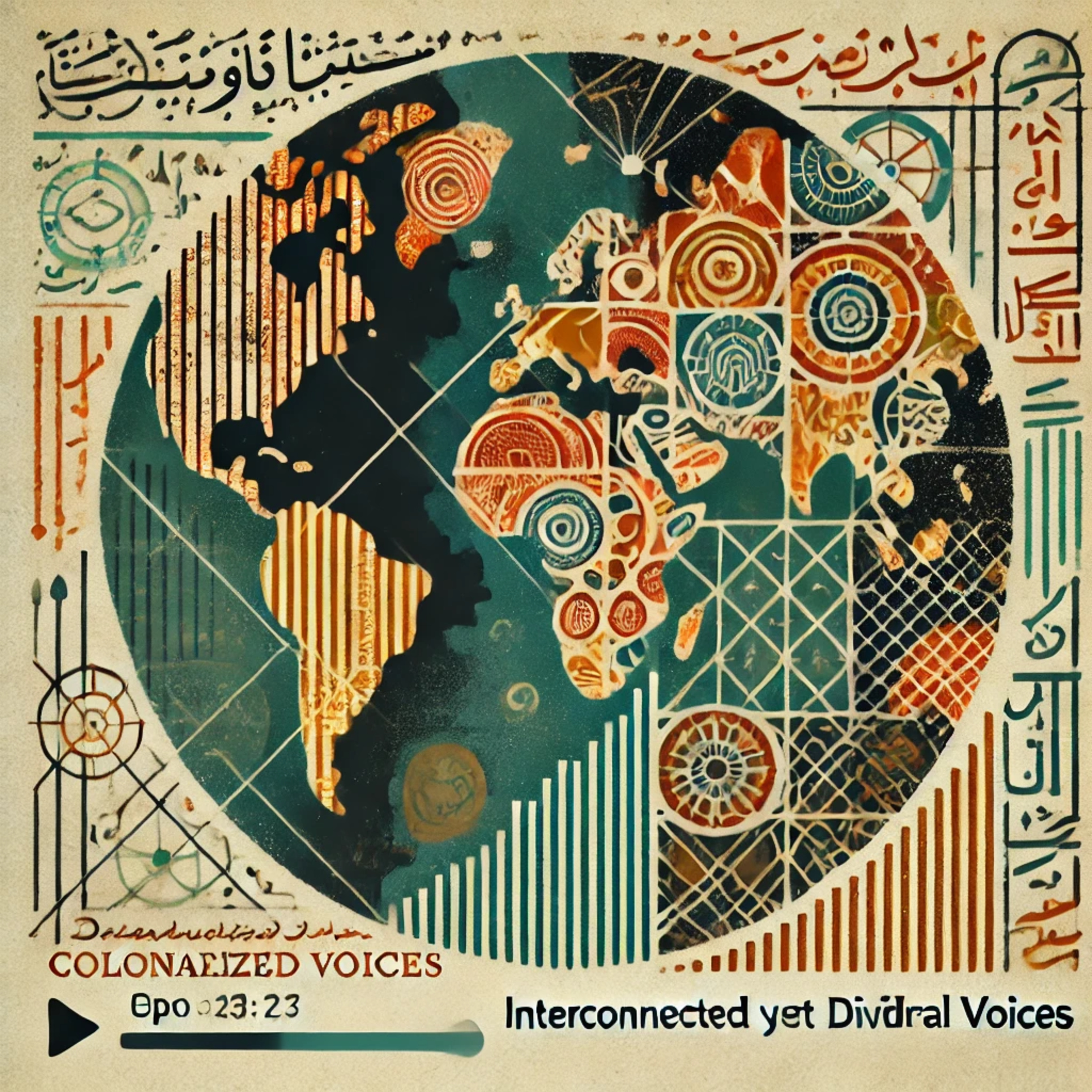
The New East Asian Studies Podcasts in the Age of AIContours of Colonialism: Decoding Postcolonial WorldsContours of Colonialism delves into the legacies of colonialism and the evolving dynamics of postcolonial worlds. Through critical discussions inspired by thinkers like Gayatri Chakravorty Spivak, Dipesh Chakrabarty, and Edward Said, we explore themes of representation, identity, and power in global history. From the silenced voices of the subaltern to the myths of Eurocentric modernity and the enduring impact of Orientalism, this podcast examines the ways colonial frameworks continue to shape societies and cultures. Join us as we decode the complexities of postcolonial thought and amplify stories from the margins in a divided yet interconnected world.
2025-01-1119 min
Au cœur du yoga#42 - Interview de Jeanne Burgart Goutal - Réflexions sur le yoga contemporain
🧘♀️ Plongée au cœur du yoga avec Jeanne Burgart Goutal : une réflexion philosophique sur la pratique du yoga et ses paradoxes 🌱
Interview réalisée pour le magazine Infos Yoga (revue n°150, janvier-février 2025) dans lequel sera publié un article issu de cet entretien.
✨ Grandes thématiques abordées dans l'interview : ✨
0:00 Présentation de Jeanne Burgart Goutal
6:50 Définir ce qu’est le yoga
2:30 Yoga Shalala
19:29 Enseigner le yoga, une responsabilité
23:55 Un parcours sur la voie du yoga, et quelques écueils
28:09 Peut-on être spirituel ET rationnel ?
35:55 Philosophie « occidentale » et yoga : quels liens ?
41:40 La philosophie : théorie ou pratique ?
52:10 Du symbole au r...
2024-12-071h 31
Uncommon SenseToxic, with Alice MahWhat comes to mind when we think about toxicity in everyday life? It could be toxic relationships or masculinity – through to consumption, waste, governance and environmental harm. Alice Mah joins Uncommon Sense to discuss toxic expertise, waste colonialism and more.The author of “Petrochemical Planet: Multiscalar Battles of Industrial Transformation” and “Plastic Unlimited: How Corporations are Fuelling the Ecological Crisis and What We Can Do About It”, Alice reflects on what the petrochemical industry has to do with sociology. From the impact on marginalised communities often having no choice but to live in a toxic environment through to the con...
2024-11-011h 02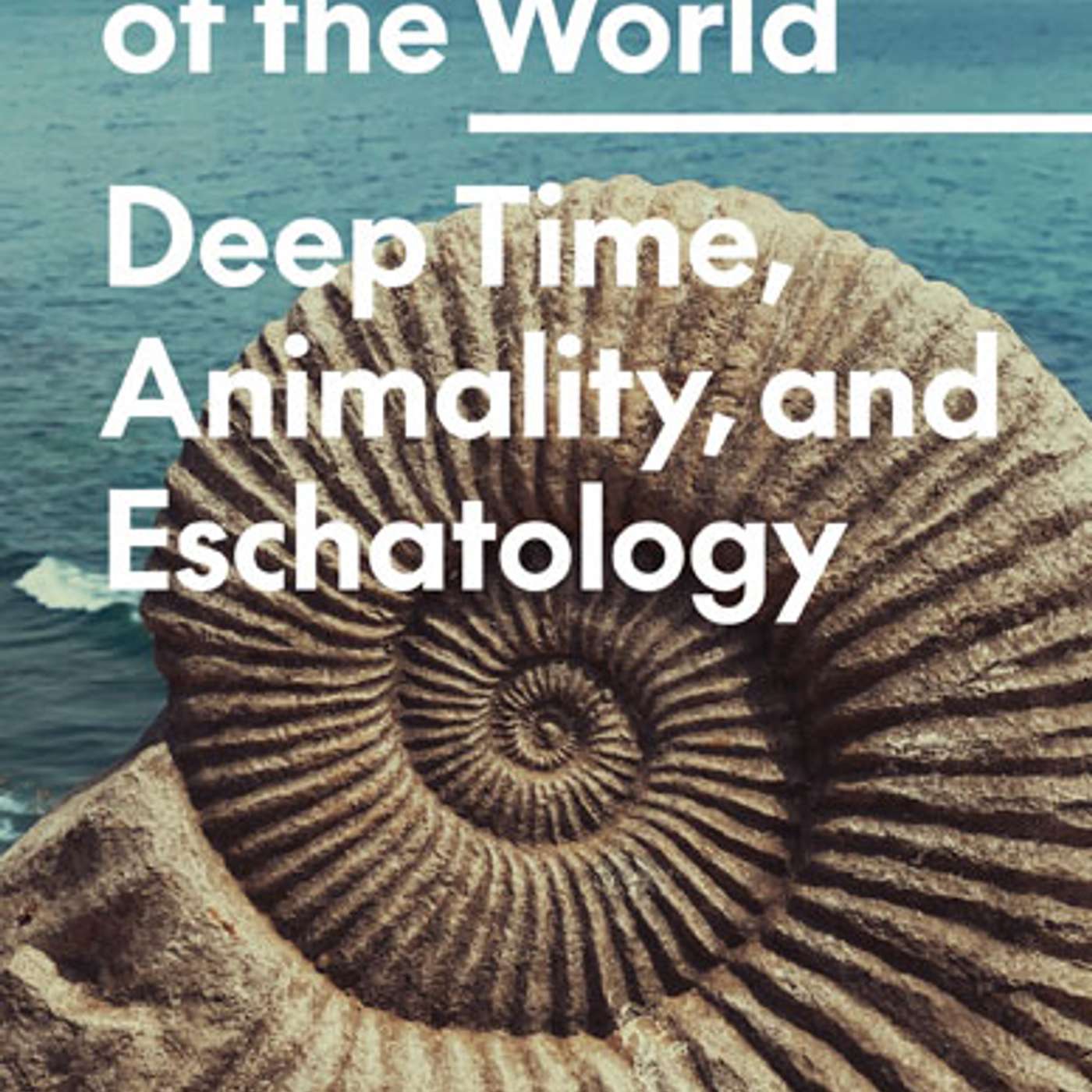
University of Minnesota PressDeconstructing deep time.Has the idea of the end of the world captured your imagination? Ted Toadvine’s book The Memory of the World: Deep Time, Animality, and Eschatology contends that a preoccupation with the world’s precarity relies on a flawed understanding of time that neglects the past and present with the goal of managing the future. Toadvine integrates insights from phenomenology, deconstruction, critical animal studies, and new materialism to argue for a new philosophy of time that takes seriously the entangled temporal events spanning cosmic, geological, evolutionary, and human durations. Here Toadvine is joined in conversation with David Morris and Benj...
2024-07-301h 18
Phân Tích Kinh TếTập 212 | Nhiều thế giới trên chỉ một hành tinhTrên một trái đất đang sôi sục, làm thế nào để không phải đối đầu nhau về những gì chúng ta cùng chia sẻ?Mời bạn nghe bài diễn văn khai mạc Hội nghị toàn thể của UNESCO do nhà sử học Dipesh Chakrabarty trình bày về vấn đề cấp thiết này.>> Đọc bài viết tại: PHÂN TÍCH KINH TẾ: Nhiều thế giới trên chỉ một hành tinh Hosted on Acast. See acast.com/privacy for more informati
2024-06-2033 min
Grüne Wirtschaft für Morgen: Circular EconomyPerspektiven unserer Erde: das Globale vs. das PlanetareWie rettet man in Circular Economy die Welt? Um diese Frage zu beantworten, werfen wir einen Blick auf das Buch “Das Klima der Geschichte im planetarischen Zeitalter” von Dipesh Chakrabarty.
Durch menschliches Handeln verändern wir die Bedingungen auf unserem Planeten. Der Klimawandel ist eine der drängendsten Herausforderungen unserer Zeit. Er beeinflusst das Wetter, die Ozeane, die Artenvielfalt und das Leben auf der Erde. In seinem Buch untersucht Chakrabarty die Auswirkungen des vom Menschen verursachten Klimawandels und des Verlusts der biologischen Vielfalt. Diese Veränderungen zeigen, dass unser Handeln nicht nur lokale, sondern auch globale Konsequenzen hat.
2024-05-2830 min
Maldita Politicagem#106 - O clima, a história e a cervejaComenta aí! Discutir o clima no âmbito das ciências sociais é um desafio. Nem sempre acreditamos no papel da humanidade como força de alteração do nosso verão! Nesse episódio exploramos as diferentes posições da área quanto à essa atual discussão. RefMORGAN, Ruth A.; SIMONETTI, Cristián. Planetary boundaries, climate change, and the Anthropocene. In: The Routledge Handbook of Environmental History. Routledge, 2024. p. 187-203.CHAKRABARTY, Dipesh. The climate of history in a planetary age. University of Chicago Press, 2021.O Maldita Politicagem é um projeto indep...
2024-05-1650 min
House of Modern HistoryNofretetes Globale Karriere – mit Sebastian ConradIn der heutigen Folge sprechen wir mit Sebastian Conrad, Professor an der Freien Universität Berlin. Dabei geht es um die Frage was Globalgeschichte überhaupt ist und was eigentlich an deutschen Unis unter dem Label Geschichte gelehrt wird. Hauptsächlich sprechen wir aber über sein aktuellstes Buch “Die Königin. Nofretetes globale Karriere”.Von feministischen und queeren Zirkeln zu faschistischen Regimen zu Beyoncé – Wer nahm alles Bezug auf sie? Welche Rolle spielten Medien dabei?Zum Schluss sprechen wir noch über die Frage der Restitution.
Literatur & Quellen:Bösch, Frank: Zeitenwende 1979. Als die Welt von heute...
2024-05-0243 min
The CourseEpisode 111 - Dipesh Chakrabarty: "The world remains a source of surprise."Dipesh Chakrabarty is currently the Lawrence A. Kimpton Distinguished Service Professor in History, South Asian Languages and Civilizations, and the College in the Department of History. Chakrabarty’s current students in History and SALC work on a variety of topics, including: 20th-century Kerala, prostitution in British India, India-China relations in the 1950s, modern Islam in Bangladeshi history, and youth culture in colonial Bengal, among other subjects. Professor Chakrabarty talks about his career path and how he became a University of Chicago professor.
2024-03-2122 min
House of Modern HistoryDas AnthropozänWir starten einen neuen Block zur Umweltgeschichte. In der ersten Folge sprechen wir über das Anthropozän. Was ist das Anthropozän? Wann fängt es an? Woher kommt der Begriff? Was können Geschichtswissenschaftler:innen damit überhaupt anfangen?
Literatur & Quellen:Bpb: Anthropozän: https://www.bpb.de/themen/umwelt/anthropozaen/Bergwik, Staffan & Ekstrom, Anders: Introduction. In: Ekstrom, Anders & Bergwik, Staffan (eds.): Times of History, Times of Nature. Temporalization and the Limits of Modern Knowledge, New York/Oxford: berghahn, 2022, pp. 1–16Braudel, Fernand: Das Mittelmeer und die mediterrane Welt in der Epoche Philipps II. Suhrkamp.Chakra...
2024-03-2143 min
You Are The Genre[Mary Rambaran-Olm] Is The GenreTim Barnes chats with literary historian, paleographer, and activist Mary Rambaran-Olm about her love of 80s cartoons, yarn work, and revealing the diverse history of the medieval era. Dr. Mary Rambaran-Olm is a public scholar who examines the many contributions of non-white people in early England, despite it often figuring in scholarship as a uniformly white period. Relying heavily on cultural theorist Stuart Hall and post-colonial theorist Dipesh Chakrabarty, she explores both the rich contributions that non-white people made to the culture of early Medieval England from the fifth to the eleventh century.Listen to...
2024-02-2648 min
歧义 La politiqueVol.17 请选择你的塔罗牌!日常仪式、赛博占卜与神学政治本期节目我们从讨论宗教研究范式的问题开始,聊了聊祭祀活动作为历史与文化交汇点的复杂性。以此为基础进一步讨论了宗教祭祀中理性与非理性的问题,并在符号学的视角下对宗教的意义进行了解读。同时我们将视角拉回当下,现代“赛博巫术”的兴起,似乎与科学的“时代主题”相悖,但正是在这样一种张力中,我们得以发现其中隐藏着的现代性贫乏与现实政治经济关系。-制作人员-主播:墨季、萧萧、Evan文字编辑:鸽鸽音频编辑:Wren大家可以通过爱发电支持我们的创作https://afdian.net/a/disagreement-时间轴-00:01:14 宗教研究范式的问题00:04:47 当代中国农村的传统祭祀仪式00:09:52 祭祀是历史与当下的交会点00:17:20 现代西方人的信仰生活:以犹太宗教到文化的转变为例00:19:12 “祭神如神在”——仪式与神的“如在”00:23:25 理性与非理性划分的问题00:34:08 符号学视角下的意义问题与宗教仪式00:38:05 现代“赛博巫术”的兴盛:象征的贫困00:46:05 宗教仪式并非迷信00:51:05 符号、客体与物的三元组视角下的仪式00:58:25 冥想——一种控制而非解放01:02:22 “梗”:虚幻的组织形式与实在的意义交换01:07:00 赛博祭祀是高度政治化的活动01:12:40 明清时代的女性宗教行为-延伸阅读-李向平《信仰、革命与权力秩序:中国宗教社会学研究》赵世瑜《狂欢与日常-明清以来的庙会与民间社会》王斯福《帝国的隐喻 中国民间宗教》李天纲《金泽 江南民间祭祀探源》埃利亚斯《文明的进程》侯旭东《什么是日常统治史》谢林《哲学与宗教》先刚 译阿尔都塞《论再生产》Talal Asad, Geneaologies of ReligionDipesh Chakrabarty, The Time of History and the Times of GodsThomas Blom Hansen, Cool Passion The Political Theology of ConvictionSaba Mahmood, Feminist Theory, Embodiment, and the Docile Agent: Some Reflections on the Egyptian Islamic RevivalHussein Ali Agrama, Ethics, tradition, authority: Toward an anthropology of the fatwa-本期配乐-珂拉琪 万千花蕊慈母悲哀
2023-11-251h 19
Radio REcycleriePrix du livre environnement 2023 : L’Histoire planétaire percutée par l’Histoire humaine ? 🎤 Dipesh ChakrabartyEntretien avec Dipesh Chakrabarty, historien indien, initiateur de la pensée décoloniale. Son dernier ouvrage Après le changement climatique, penser l’histoire (Gallimard, 2023) a été nommé pour le Prix du livre environnement 2023 de la fondation Veolia.
Le concept d’anthropocène représente une notion clé pour penser le temps de l’Histoire naturelle et le temps de l’Histoire humaine. En effet, ces deux échelles de temps ne forment plus qu’un seul et même mouvement, nous dit Dipesh Chakrabarty. Un mouvement qui nous éloigne de la globalisation et nous rapproche du planétair...
2023-11-0725 min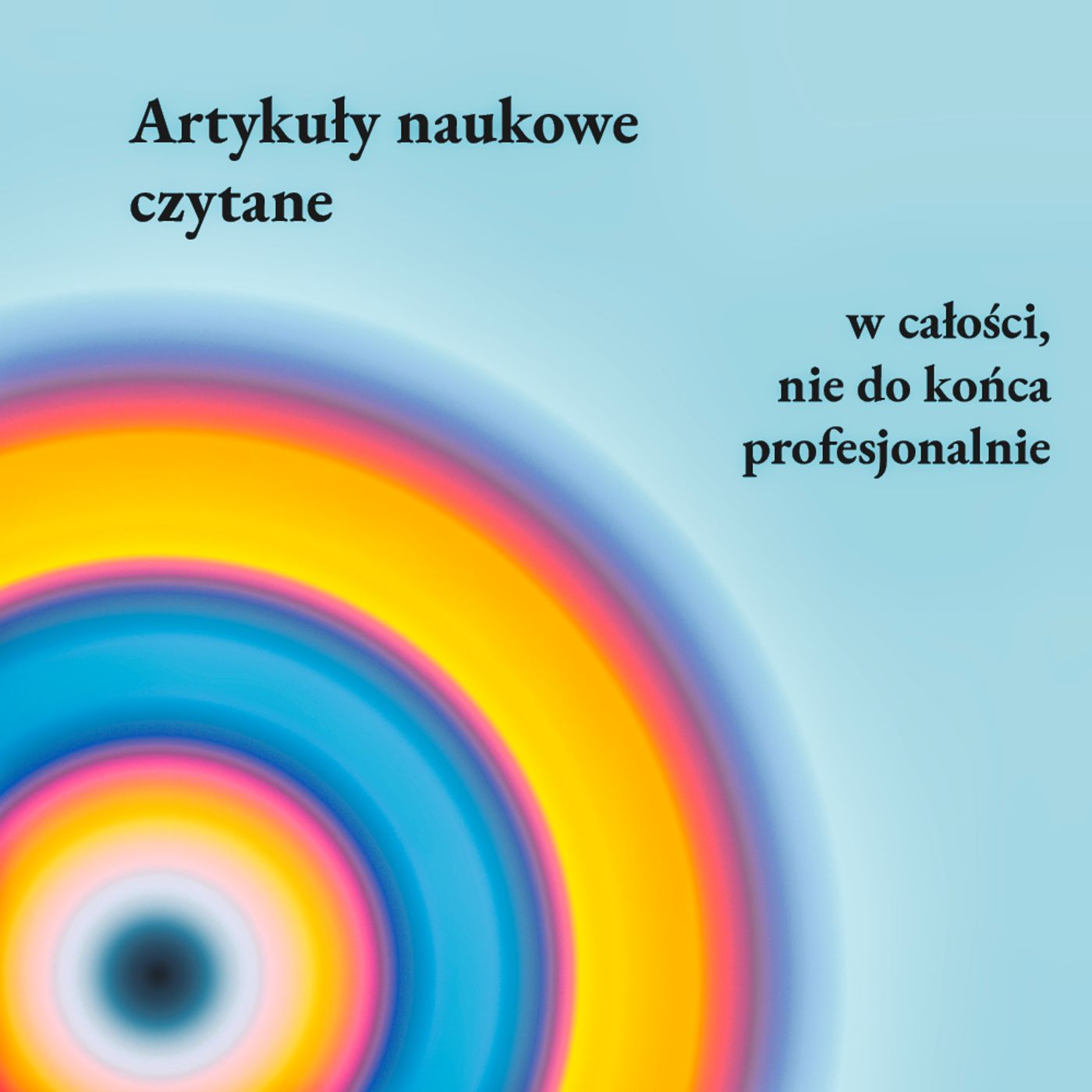
Artykuły naukowe czytane128b: Klimat Historii. Cztery Tezy - Dipesh ChakrabartyChakrabarty, Dipesh. 2014. „Klimat Historii. Cztery Tezy”. Teksty Drugie, nr 5: 168–99.Astrum, esej o zmianach klimatu:https://www.youtube.com/watch?v=dpvd9FensT8Warto zapoznać też:https://culture.pl/pl/dzielo/ewa-binczyk-epoka-czlowieka-retoryka-i-marazm-antropocenuDrobne wpłaty, bo roczna opłata za podkast się zbliża:https://ko-fi.com/artykulynaukowe
2023-10-1349 min
Artykuły naukowe czytane128a: Klimat Historii. Cztery Tezy - Dipesh ChakrabartyChakrabarty, Dipesh. 2014. „Klimat Historii. Cztery Tezy”. Teksty Drugie, nr 5: 168–99.Drobne wpłaty, bo roczna opłata za podkast się zbliża:https://ko-fi.com/artykulynaukowe
2023-10-1239 min
12ème édition - 202324 août 2023 – Dialogue entre l’historien Dipesh Chakrabarty et le philosophe Mathieu Potte-BonnevilleDe l’histoire mondiale au temps planétaire
jeudi 24 août 2023 - 17h30
Dialogue entre l’historien Dipesh Chakrabarty et le philosophe Mathieu Potte-Bonneville
Dipesh Chakrabarty s’est fait connaitre dans le monde entier avec Provincialiser l’Europe, la pensée postcoloniale et la différence historique, devenu un des essais phares des études postcoloniales aux débuts des années 2000. L’ouvrage entendait sortir de l’histoire linéaire de la modernité régie par l’occident pour faire entendre d’autre voix et d’autres temporalités. C’est à un nouveau déplacement que l’historien indien nous invite...
2023-09-141h 27
La Manufacture d'idées24 août 2023 – Dialogue entre l’historien Dipesh Chakrabarty et le philosophe Mathieu Potte-BonnevilleDe l’histoire mondiale au temps planétaire
jeudi 24 août 2023 – 17h30
Dialogue entre l’historien Dipesh Chakrabarty et le philosophe Mathieu Potte-Bonneville
Dipesh Chakrabarty s’est fait connaitre dans le monde entier avec Provincialiser l’Europe, la pensée postcoloniale et la différence historique, devenu un des essais phares des études postcoloniales aux débuts des années 2000. L’ouvrage entendait sortir de l’histoire linéaire de la modernité régie par l’occident pour faire entendre d’autre voix et d’autres temporalités. C’est à un nouveau déplacement que l’historien indien nous invite avec...
2023-09-121h 27In the MomentCI Moments
Dipesh Chakrabarty
Critical Inquiry is fifty! I am sure there have been journals that have lasted longer. But what is remarkable is that CI – not the mouthpiece of a professional association but an in-house journal run by colleagues at the University of Chicago – has managed to retain its position as a leading journal of the humanities continuously for decades. CI came into my life late. Throughout the 1970s, I trained to be a social-scientific historian of South Asia and even tried my hand at using some tools of econometrics only to realize that my passions lay elsewhere. The...
2023-09-1100 min
New Books in ArtTravis Holloway, "How to Live at the End of the World: Theory, Art, and Politics for the Anthropocene" (Stanford UP, 2022)the near universal disappearance of shared social enterprise: the ruling class builds walls and lunar shuttles, while the rest of us contend with the atrophy of institutional integrity and the utter abdication of providing even minimal shelter from looming disaster.The irony of the Anthropocene era is that, in a neoliberal culture of the self, it is forcing us to consider ourselves as a collective again. For those of us who are not wealthy enough to start a colony on Mars or isolate ourselves from the world, the Anthropocene ends the fantasy of sheer individualism and worldlessness...
2023-08-2351 min
New Books in Environmental StudiesTravis Holloway, "How to Live at the End of the World: Theory, Art, and Politics for the Anthropocene" (Stanford UP, 2022)the near universal disappearance of shared social enterprise: the ruling class builds walls and lunar shuttles, while the rest of us contend with the atrophy of institutional integrity and the utter abdication of providing even minimal shelter from looming disaster.The irony of the Anthropocene era is that, in a neoliberal culture of the self, it is forcing us to consider ourselves as a collective again. For those of us who are not wealthy enough to start a colony on Mars or isolate ourselves from the world, the Anthropocene ends the fantasy of sheer individualism and worldlessness...
2023-08-2351 min
New Books in the History of ScienceTravis Holloway, "How to Live at the End of the World: Theory, Art, and Politics for the Anthropocene" (Stanford UP, 2022)the near universal disappearance of shared social enterprise: the ruling class builds walls and lunar shuttles, while the rest of us contend with the atrophy of institutional integrity and the utter abdication of providing even minimal shelter from looming disaster.The irony of the Anthropocene era is that, in a neoliberal culture of the self, it is forcing us to consider ourselves as a collective again. For those of us who are not wealthy enough to start a colony on Mars or isolate ourselves from the world, the Anthropocene ends the fantasy of sheer individualism and worldlessness...
2023-08-2351 min
New Books in Critical TheoryTravis Holloway, "How to Live at the End of the World: Theory, Art, and Politics for the Anthropocene" (Stanford UP, 2022)the near universal disappearance of shared social enterprise: the ruling class builds walls and lunar shuttles, while the rest of us contend with the atrophy of institutional integrity and the utter abdication of providing even minimal shelter from looming disaster.The irony of the Anthropocene era is that, in a neoliberal culture of the self, it is forcing us to consider ourselves as a collective again. For those of us who are not wealthy enough to start a colony on Mars or isolate ourselves from the world, the Anthropocene ends the fantasy of sheer individualism and worldlessness...
2023-08-2351 min
Uncommon SenseEuropeans, with Manuela BoatcăDoes anyone know what European means? Manuela Boatcă thought she did, until a late 1990s move from Romania to Germany unsettled everything she had taken for granted. In this episode, she challenges mainstream ideas of “Europe” to show how its borders extend to the Caribbean (and beyond) – a fact that’s obvious if we acknowledge colonialism’s past and present, but is an inconvenient truth for some in political power.Alexis and Rosie ask Manuela: How has Brexit revealed the contradictions built into so much discourse about “Europe”? How does “Creolizing” theory differ from “Decolonising” it? And what is the legacy of e...
2023-06-1649 min
House of Modern HistoryGlobalgeschichte, Steinkohle und Umweltschutz – mit Helge WendtWir sprechen heute mit Helge Wendt. Dieser hat Geschichte und Altamerikanistik studiert und hat ganz aktuell seine Habilitation “Kohlezeit. Eine Global- und Wissensgeschichte (1500–1900) rausgebracht.
Darüber sprechen wir auch hauptsächlich mit ihm. Am Anfang geht es dabei viel um den Ansatz, die Theorien und Methoden: Wir sprechen darüber was Globalgeschichte überhaupt ist und was nicht; und warum jede Geschichte so regional sie auch sein mag, auch Globalgeschichte ist.
Doch Helge Wendt spricht mit uns auch über die inhaltlichen Erkenntnisse aus seiner Recherche und beschreibt was sich durch Kohle als Sonde darstellen und zeigen lässt. Warum ist...
2023-02-231h 11
Trinity Long Room Hub PodcastsBehind the Headlines | Waste Lands: Imagining Climate CatastropheRecorded November 10, 2022
Responding to the devastation of the First World War, in 1922 T.S. Eliot wrote of showing us ‘fear in a handful of dust’, in his monumental poem, The Waste Land. On the centenary of the poem’s first full publication, this Behind the Headlines discussion confronts the ecological devastation of contemporary global landscapes, and ask: does the creative imagining of landscape ruination, destruction, and even apocalypse amount to effective protest?
In this panel, we hear from award-winning Irish filmmaker Neasa Hardiman; Cathriona Russell, Assistant Professor, Trinity School of Religion; Yairen Jerez Columbié, Assistant Professor, Trinity School of Languages, Literat...
2023-01-1350 min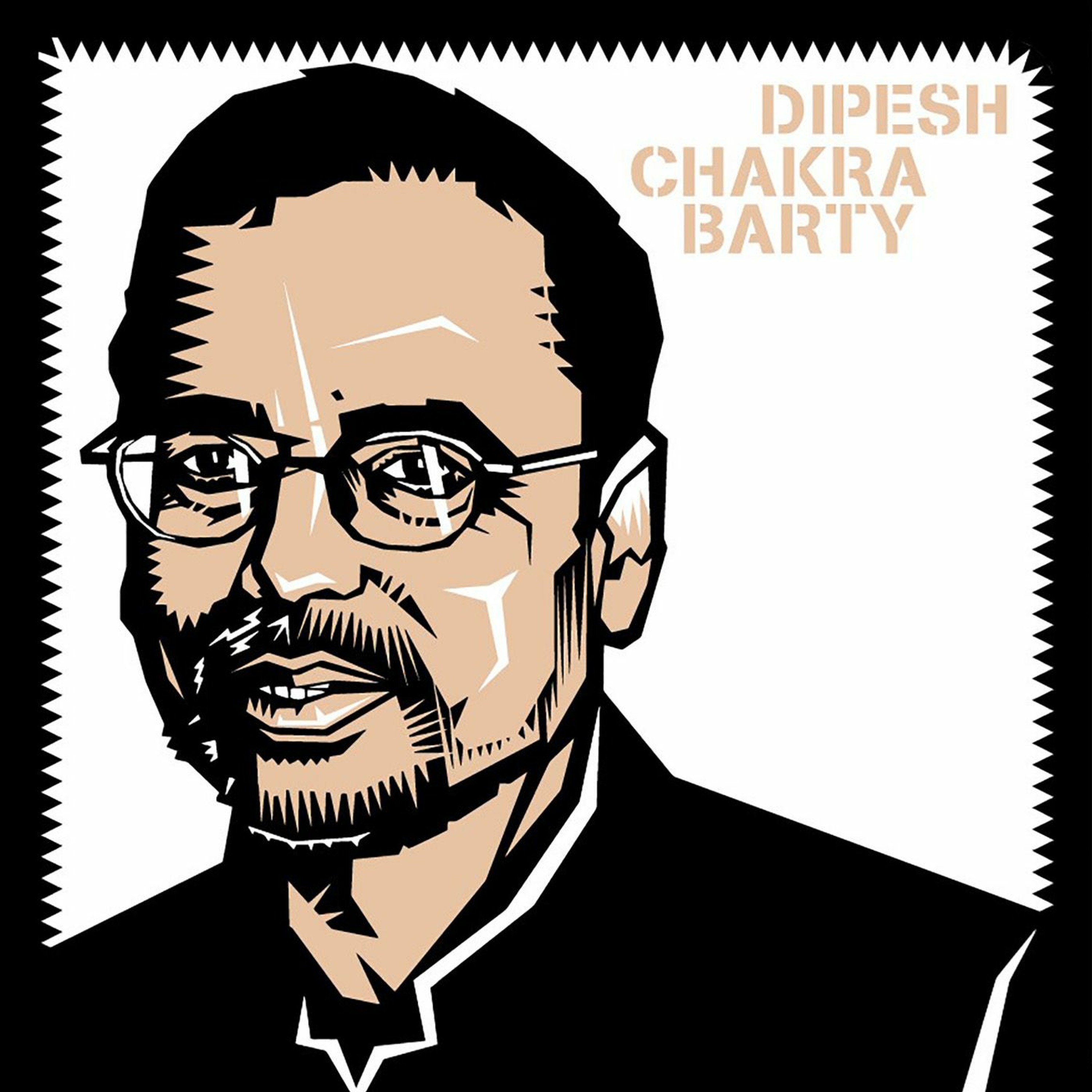
Rosa-Luxemburg-Stiftung Audiodokumentationentl;dr #21: Dipesh Chakrabarty - Das Klima der Geschichte im planetarischen ZeitalterAlex Demirović im Gespräch mit dem Politikwissenschaftler Markus Wissen
Das Zeitalter des Anthropozäns zeichnet sich dadurch aus, dass der Mensch zu einem bedeutenden Einflussfaktor auf biologische und geologische Entwicklungen der Weltgeschichte geworden ist. Tiefgreifend haben die Menschen in die natürlichen Kreisläufe eingegriffen. Immer mehr begreifen wir, wie umfassend diese Eingriffe sind und wie sehr sie den Planeten verändern. Die Bewohnbarkeit der Erde steht in Frage: nicht nur für Menschen, sondern auch für alle anderen Spezies: Tiere, Pflanzen, Bakterien, Viren. Für die kommenden Jahrtausende haben die Menschen das Klima und die Meere verändert, dur...
2022-11-2950 min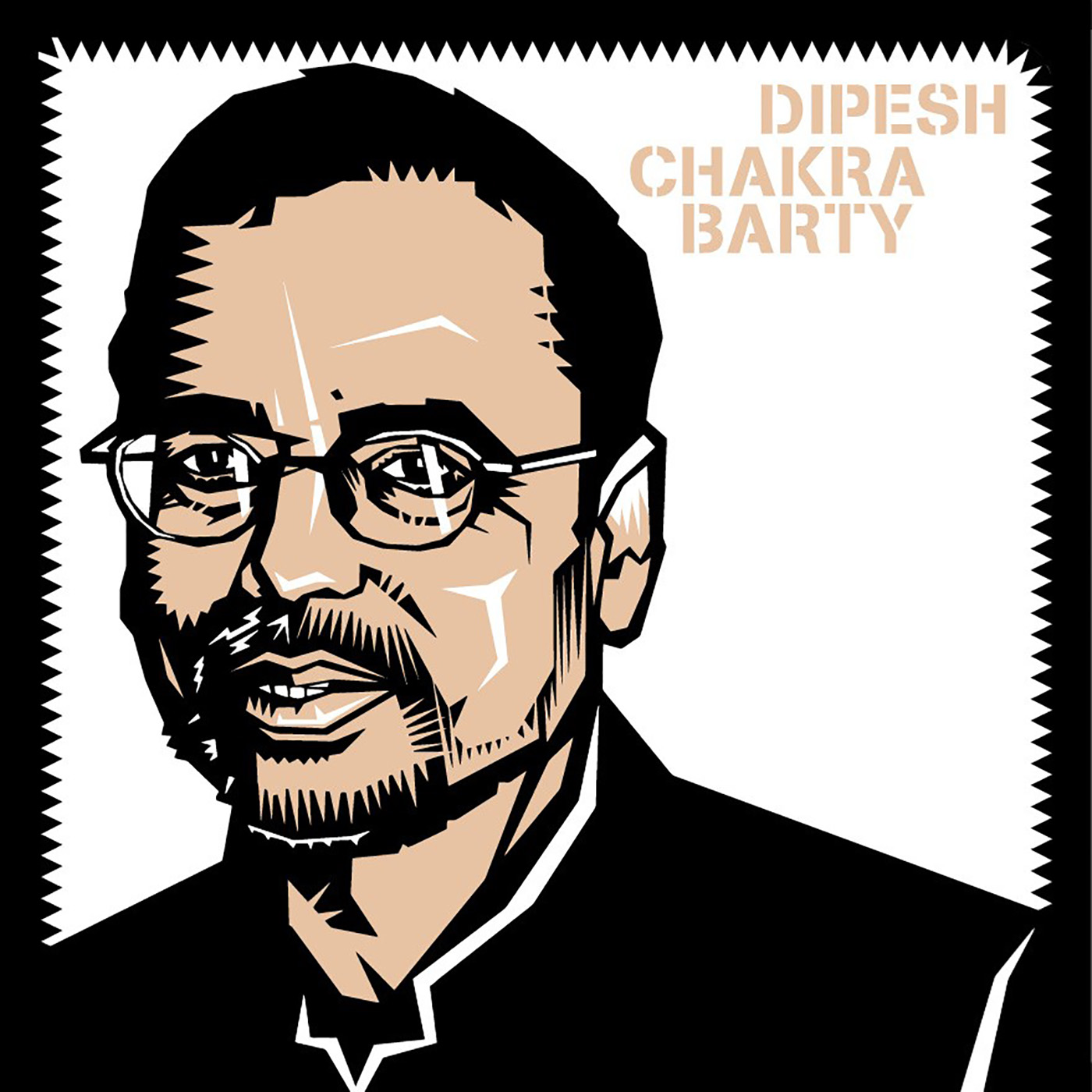
tl;drtl;dr #21: Dipesh Chakrabarty: «Das Klima der Geschichte im planetarischen Zeitalter» mit Markus WissenAlex Demirović im Gespräch mit dem Politikwissenschaftler Markus Wissen
Das Zeitalter des Anthropozäns zeichnet sich dadurch aus, dass der Mensch zu einem bedeutenden Einflussfaktor auf biologische und geologische Entwicklungen der Weltgeschichte geworden ist. Tiefgreifend haben die Menschen in die natürlichen Kreisläufe eingegriffen. Immer mehr begreifen wir, wie umfassend diese Eingriffe sind und wie sehr sie den Planeten verändern. Die Bewohnbarkeit der Erde steht in Frage: nicht nur für Menschen, sondern auch für alle anderen Spezies: Tiere, Pflanzen, Bakterien, Viren. Für die kommenden Jahrtausende haben die Menschen das Klima und die Meere verändert...
2022-11-2950 min
Narrative for Social JusticeEnvironmental Justice and Narrative in the AnthropoceneIn this episode of the Narrative for Social Justice Podcast, host Carolin Gebauer talks with Erin James about environmental justice and the role of narrative in the Anthropocene. Erin speaks about her new book, Narrative in the Anthropocene (Ohio State University Press, 2022), in which she conceptualizes narrative as both a rhetorical and cognitive mode that can help us to analyze and comprehend the causes, consequences, and problems of the current global climate crisis. The conversation focuses on various aspects that shape our understanding of climate change such as the relation between humankind and other species, the nexus between climate...
2022-06-2453 minColloques et conférencesColloque final ANR LIMINAL : YÔDEGÔRI / Narrations, tracesIntervention de William Berthiomière DR CNRS à l'UMR Passages, lors du colloque final de l'ANR LIMINAL, le 15 septembre 2019.
[45:37 à 01:00:81]
Session 10 : YÔDEGÔRI / Narrations, traces
Que font aux langues les espaces sociaux de la migration ? De quelles façons mettent-elles à l’épreuve les politiques migratoires ? Que deviennent les sujets et les langues sur le qui-vive face à la langue de souveraineté du pays d’arrivée ? Quelles sont les politiques de traduction, le rôle des « traduisants », bénévoles ou salariés impliqués dans l’acte de traduire sans en avoir ni le statut ni la légitimité ? L’expéri...
2022-06-0100 min
Crítica y feminismo06. DIpesh Chakrabarty (y Linda Tuhiwai Smith, de nuevo)Acá hablamos más sobre colonialidad e imperialismo de la mano de Tuhiwai Smith y (otra vez, je) Quijano.
2021-11-082h 57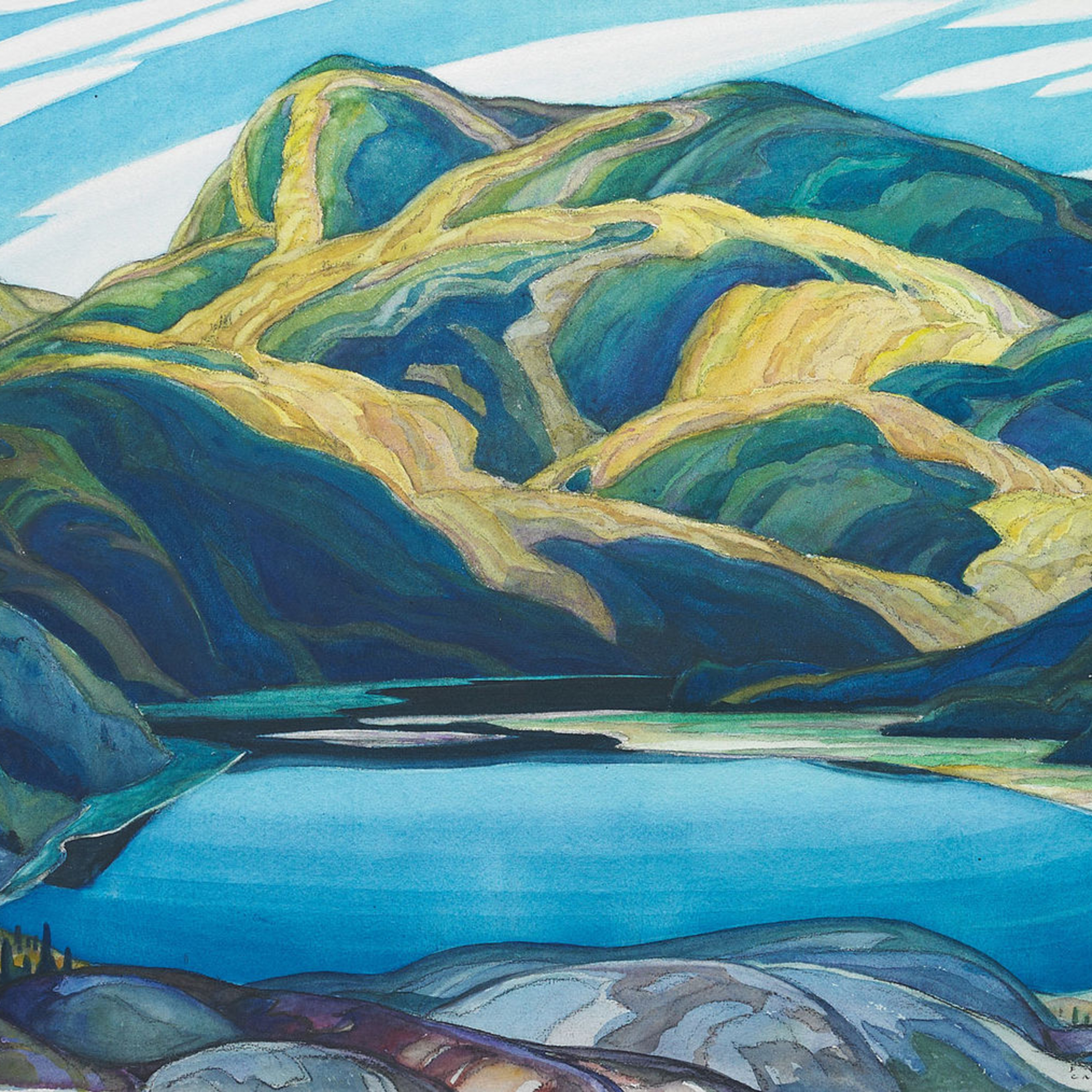
A Cultural History of CanadaUNLOCKED: Pop Canada #14: Nature & Environmentalism in CultureIn which we unlock our latest episode of Pop Canada to the public! Listen in as we discuss how nature appears in Canadian culture and then segue into a talk about the current climate crisis. If you want to find more (and complete) episode of Pop Canada you can support us on Patreon for 3$ a month! --- Contact: historiacanadiana@gmail.com, Twitter (@CanLitHistory) & Facebook (https://www.facebook.com/CanLitHistory). --- Support: Patreon (https://www.patreon.com/historiacanadiana); Paypal (https://www.paypal.com/paypalme/historiacanadiana); the recommended reading page (https...
2021-11-0751 min
Historychatter PodcastDisputation To Conversations: Prof. Dipesh Chakrabarty and His HistoriesThis special episode of HistoryChatter features a conversation with Prof. Dipesh Chakrabarty, who works at the University of Chicago. He speaks about his life and career, from his early exposure to philosophy and literature to reading science and management in university to finally moving to doing history quite late in life and eventually making a series of breakthrough contributions to the discipline of researching and writing history. In this freewheeling conversation, he reflects on fundamental conceptual questions such as how to make arguments or the particularly complex ways in which the evolving biographies and locations of scholars...
2021-08-2954 min
UCL Sarah Parker Remond Centre PodcastIn conversation with Dipesh ChakrabartyWe’re joined by Dipesh Chakrabarty, Professor of History and author of The Climate of History in a Planetary Age, for a conversation on his intellectual trajectory and the idea of the planetary. Speaking on the climate crisis and the human condition, Dipesh states that “unless we realise our geological agency and the geomorphological role we play that is changing the landscape of the planet, we won’t realise the depth of the predicament that we’re in.” Transcript: www.ucl.ac.uk/racism-racialisation/transcript-conversation-dipesh-chakrabarty This conversation was recorded on 13th June 2021
2021-08-2543 min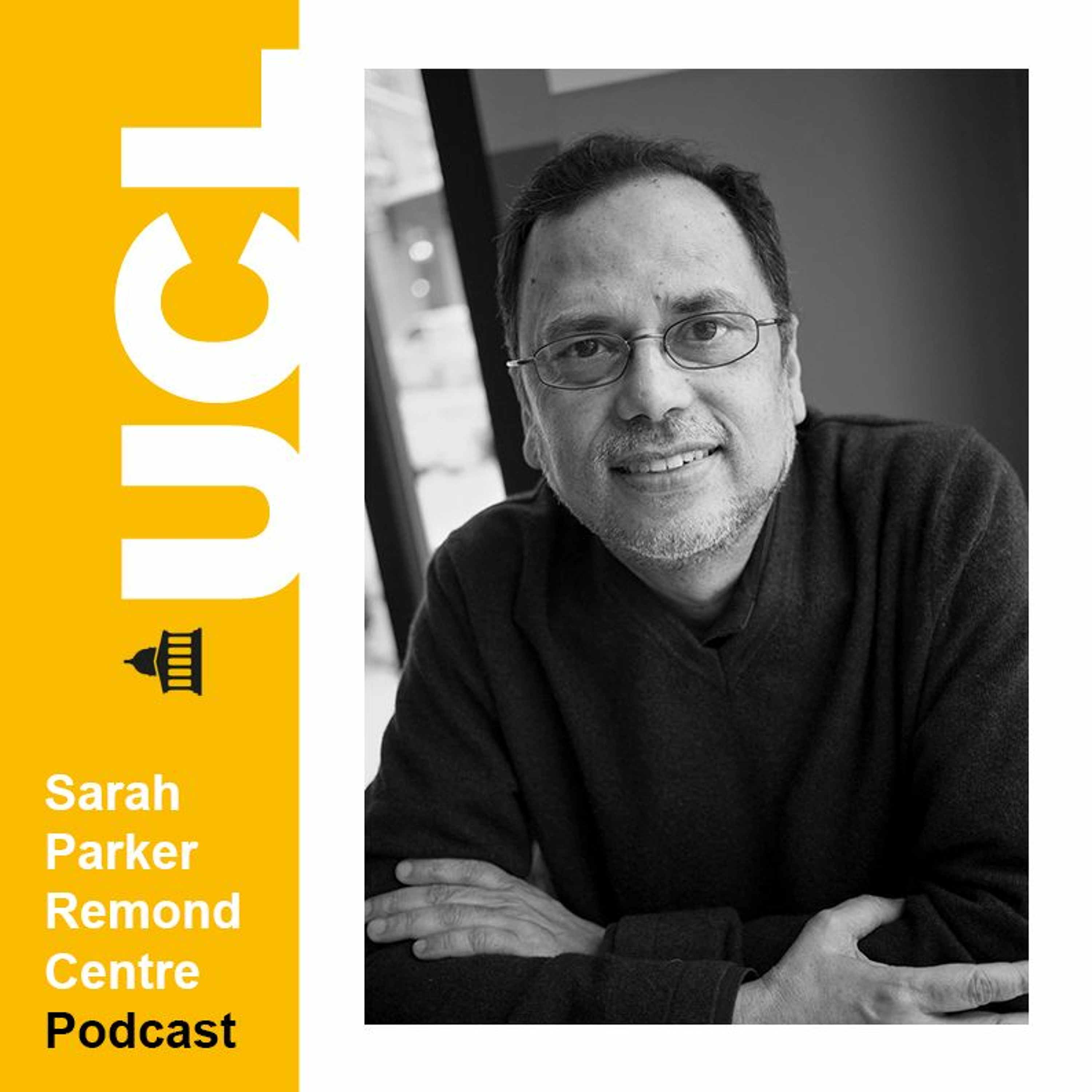
UCL Institute of Advanced StudiesSPRC In conversation with Dipesh ChakrabartyWe’re joined by Dipesh Chakrabarty, Professor of History and author of 'The Climate of History in a Planetary Age', for a conversation on his intellectual trajectory and the idea of the planetary. Speaking on the climate crisis and the human condition, Dipesh states that “unless we realise our geological agency and the geomorphological role we play that is changing the landscape of the planet, we won’t realise the depth of the predicament that we’re in.”
Transcript: www.ucl.ac.uk/racism-racialisation/transcript-conversation-dipesh-chakrabarty
This conversation was recorded on 13th June 2021
Speakers: Ashish Ghadiali, Activist-in-Residence, UCL Sarah Parker Remond Centre...
2021-08-2543 min
Fora de PrumoF! #21. Tiny Houses, Big Problems.O mundo suburbano nos EUA é tradicionalmente vendido por filmes e seriados de televisão como um lugar agradável e repleto de pessoas felizes. De fato, uma parcela significativa da população estadunidense vive em áreas de subúrbio. Contudo, diferente do dia-a-dia idílico das cenas da cultura de massas, o sonho americano tem produzido pesadelos suburbanos nos últimos anos: hipotecas impagáveis, dívidas familiares, poluição e destruição ambiental. Uma solução mágica para os problemas dessa sociedade do consumo desenfreado tem sido vendido por alguns programas de TV na forma do movimento das "tiny houses" — cas...
2021-07-261h 00
The Circled SquareJanet Gyatso, Posthumanism and Animal Ethics in Buddhist StudiesDescription
In this episode, Dr. Janet Gyatso discusses how she teaches her students about posthumanism and animal ethics in her courses on Buddhist Studies. She is the Hershey Professor of Buddhist Studies and Associate Dean for Faculty and Academic Affairs at Harvard Divinity School.
Quotes
“Part of what I'm trying to do is set aside all the mythology and ideology that we have and try to see animals for what they are.” Janet Gyatso
“Posthumanism is an attempt to ratchet down the centrality of humans, in our thought, in our discourse, in our v...
2021-05-1354 min
The Connected Sociologies PodcastGendering Modernity: Postcolonial and Decolonial Perspectives - Prof Anne PhillipsFrom (at least) the eighteenth century onwards, European philosophers and historians have represented the status of women as a crucial marker of a society’s level of civilisation, and have seen modernity as the era when women came to be accepted as individuals in their own right. In this framing of distinctions between ‘traditional’ and ‘modern’, it became one of the justifications for colonialism that it supposedly rescued women from precolonial abuses. The contrast is however highly contentious, and particularly so when ‘modernity’ so often maintained and intensified gender difference. Ideas about the superior treatment of women in modern societies cont...
2021-02-0814 min
New Books in Diplomatic HistoryChristopher J. Lee, "Making a World After Empire: The Bandung Moment and Its Political Afterlives" (Ohio UP, 2019)In April 1955, twenty-nine countries from Africa, Asia, and the Middle East came together for a diplomatic conference in Bandung, Indonesia, intending to define the direction of the postcolonial world. Ostensibly representing two-thirds of the world’s population, the Bandung conference occurred during a key moment of transition in the mid-twentieth century—amid the global wave of decolonization that took place after the Second World War and the nascent establishment of a new Cold War world order in its wake.Participants such as Jawaharlal Nehru of India, Gamal Abdel Nasser of Egypt, Zhou Enlai of China, and Sukarno of I...
2020-11-171h 26
The Ohio University Press PodcastChristopher J. Lee, "Making a World After Empire: The Bandung Moment and Its Political Afterlives" (Ohio UP, 2019)In April 1955, twenty-nine countries from Africa, Asia, and the Middle East came together for a diplomatic conference in Bandung, Indonesia, intending to define the direction of the postcolonial world. Ostensibly representing two-thirds of the world’s population, the Bandung conference occurred during a key moment of transition in the mid-twentieth century—amid the global wave of decolonization that took place after the Second World War and the nascent establishment of a new Cold War world order in its wake.Participants such as Jawaharlal Nehru of India, Gamal Abdel Nasser of Egypt, Zhou Enlai of China, and Sukarno of I...
2020-11-171h 26
New Books in African StudiesChristopher J. Lee, "Making a World After Empire: The Bandung Moment and Its Political Afterlives" (Ohio UP, 2019)In April 1955, twenty-nine countries from Africa, Asia, and the Middle East came together for a diplomatic conference in Bandung, Indonesia, intending to define the direction of the postcolonial world. Ostensibly representing two-thirds of the world’s population, the Bandung conference occurred during a key moment of transition in the mid-twentieth century—amid the global wave of decolonization that took place after the Second World War and the nascent establishment of a new Cold War world order in its wake.Participants such as Jawaharlal Nehru of India, Gamal Abdel Nasser of Egypt, Zhou Enlai of China, and Sukarno of I...
2020-11-171h 26
New Books in Middle Eastern StudiesChristopher J. Lee, "Making a World After Empire: The Bandung Moment and Its Political Afterlives" (Ohio UP, 2019)In April 1955, twenty-nine countries from Africa, Asia, and the Middle East came together for a diplomatic conference in Bandung, Indonesia, intending to define the direction of the postcolonial world. Ostensibly representing two-thirds of the world’s population, the Bandung conference occurred during a key moment of transition in the mid-twentieth century—amid the global wave of decolonization that took place after the Second World War and the nascent establishment of a new Cold War world order in its wake.Participants such as Jawaharlal Nehru of India, Gamal Abdel Nasser of Egypt, Zhou Enlai of China, and Sukarno of I...
2020-11-171h 27
TEORIZANDO#9 - Universalismo em cheque: uma introdução à obra de Dipesh Chakrabarty (Com Fernando Pureza e Alfredo Ricardo Silva Lopes)Você está ouvindo o Teorizando! O seu podcast de teoria da história. Somos Alexandre Martins Costa e Danielle Dornelles, neste episódio introduzimos a obra de Dipesh Chakrabarty. No quadro de entrevistas, recebemos os professores Fernando Pureza (UFPB) e Alfredo Ricardo Silva Lopes (UFMS). Na sequência, o quadro de comentários discentes da turma de Teoria da História II da UFSC. Bibliografia: CHAKRABARTY, D. Histórias de minorias, passados subalternos. In: SANCHES, Maria Ribeiro (org). Deslocalizar a Europa: Antropologia, Arte, Literatura e História na Pós-colonialidade. Lisboa: Edições Cotovia, p. 209-230, 2005. CHAKRABARTY, Dipesh. O cli...
2020-11-1639 min
Geografia pra que(m)?Geografia: Pós-colonialismo e Decolonialidade"Queremos pôr em prática um pensamento utópico, entendido como energia e força de Insurreição, como presença e como convite para sonhos emancipatórios, como gesto de ruptura: ousar pensar para além do que se apresenta como “natural”, “pragmático”, “razoável”. Não queremos construir uma comunidade utópica, mas restaurar toda a sua força criativa em Sonhos de insubmissão e resistência, justiça e liberdade, felicidade e bondade, amizade e encantamento". Este é um trecho de “Manifest de L’atelier IV, performance e curadoria de Françoise Vergé, realizado em 2017 e apresentado pela autora em...
2020-11-021h 30
SeminarThe idea of provincializing Europe by Dipesh ChakrabartyFirst part of the essay introduction: The idea of provincializing Europe
2020-08-1808 min
wrint: gespräche zum runterladenWR1103 Weißsein (mit Susan Arndt) “Hautfarbe ist ein erlerntes Sehen”, sagt Susan Arndt. Sie ist Professorin für englische und afrikanische Literaturen an der Universität Bayreuth und betreibt dort unter anderem kritische Weißseinsforschung.
“Hautfarbe ist ein erlerntes Sehen”, sagt Susan Arndt. Sie ist Professorin für englische und afrikanische Literaturen an der Universität Bayreuth und betreibt dort unter anderem kritische Weißseinsforschung.
Darin: Rassismus – Deutschland Schwarz Weiß* – Kritische Weißseinsforschung – Farbsymbolik – Parzival – John Hawkins – Hegel – Kant – Anton Wilhelm Amo – Minstrel Shows – Jim Crow – Dipesh Chakrabarty – Exit Racism* – Peggy Piesche – Tillschneider – Maisha-Maureen Eggers – Narratologie – The Tempest – Othello – Robinson Crusoe – Das weiße Band – Heteronormativität
*Affiliate-Link...
2020-07-021h 41
Zum ThemaWR1103 Weißsein (mit Susan Arndt) “Hautfarbe ist ein erlerntes Sehen”, sagt Susan Arndt. Sie ist Professorin für englische und afrikanische Literaturen an der Universität Bayreuth und betreibt dort unter anderem kritische Weißseinsforschung.
“Hautfarbe ist ein erlerntes Sehen”, sagt Susan Arndt. Sie ist Professorin für englische und afrikanische Literaturen an der Universität Bayreuth und betreibt dort unter anderem kritische Weißseinsforschung.
Darin: Rassismus – Deutschland Schwarz Weiß* – Kritische Weißseinsforschung – Farbsymbolik – Parzival – John Hawkins – Hegel – Kant – Anton Wilhelm Amo – Minstrel Shows – Jim Crow – Dipesh Chakrabarty – Exit Racism* – Peggy Piesche – Tillschneider – Maisha-Maureen Eggers – Narratologie – The Tempest – Othello – Robinson Crusoe – Das weiße Band – Heteronormativität
*Affiliate-Link...
2020-07-021h 41
Zum Thema – WRINT: Wer redet ist nicht totWR1103 Weißsein (mit Susan Arndt)
„Hautfarbe ist ein erlerntes Sehen“, sagt Susan Arndt. Sie ist Professorin für englische und afrikanische Literaturen an der Universität Bayreuth und betreibt dort unter anderem kritische Weißseinsforschung.
Darin: Rassismus – Deutschland Schwarz Weiß* – Kritische Weißseinsforschung – Farbsymbolik – Parzival – John Hawkins – Hegel – Kant – Anton Wilhelm Amo – Minstrel Shows – Jim Crow – Dipesh Chakrabarty – Exit Racism* – Peggy Piesche – Tillschneider – Maisha-Maureen Eggers – Narratologie – The Tempest – Othello – Robinson Crusoe – Das weiße Band – Heteronormativität
*Affiliate-Link: Wer über diesen Link Amazon betritt, lässt mir bei allen Käufen der Session eine Provision zukommen.
2020-07-0200 min
Podcast – WRINT: Wer redet ist nicht totWR1103 Weißsein (mit Susan Arndt)
„Hautfarbe ist ein erlerntes Sehen“, sagt Susan Arndt. Sie ist Professorin für englische und afrikanische Literaturen an der Universität Bayreuth und betreibt dort unter anderem kritische Weißseinsforschung.
Darin: Rassismus – Deutschland Schwarz Weiß* – Kritische Weißseinsforschung – Farbsymbolik – Parzival – John Hawkins – Hegel – Kant – Anton Wilhelm Amo – Minstrel Shows – Jim Crow – Dipesh Chakrabarty – Exit Racism* – Peggy Piesche – Tillschneider – Maisha-Maureen Eggers – Narratologie – The Tempest – Othello – Robinson Crusoe – Das weiße Band – Heteronormativität
*Affiliate-Link: Wer über diesen Link Amazon betritt, lässt mir bei allen Käufen der Session eine Provision zukommen.
2020-07-0200 min
COVIDCallsEP #61 - 6/8/2020 - Globalization and Human History During the PandemicWith globalization reaching higher levels than ever, more and more businesses and organizations are growing influence around the world, which is contributing to the Anthropocene narrative of the great impacts of human activity on the environment. Tune in to this conversation with Dipesh Chakrabarty, who is a Lawrence A. Kimpton Distinguished Service Professor of History at the University of Chicago, to gain a deeper understanding of climate change history and human history and how that connection might throw some light on the COVID-19 pandemic. You can find Dipesh Chakrabarty’s information here: https://history.uchicago.edu/directory/dipesh-chakrabarty.
2020-06-101h 21
First Draft with Sarah EnniDr. Somaiya DaudDr. Somaiya Daud is the author of Mirage and its forthcoming sequel, Court of Lions (out August 4, 2020). Check out the cover reveal from Court of Lions and read an excerpt at Tor.com, as well as a conversation between Somaiya and I about how the theme of lost cultures functions in the series. Somaiya has also answered questions on a February 28, 2020 mailbag episode, and was featured on the July 5, 2014 episode (the very first First Draft episode ever). Links and Topics Mentioned In This Episode Somaiya Daud's first interview with First Draft Podcast
2020-06-091h 07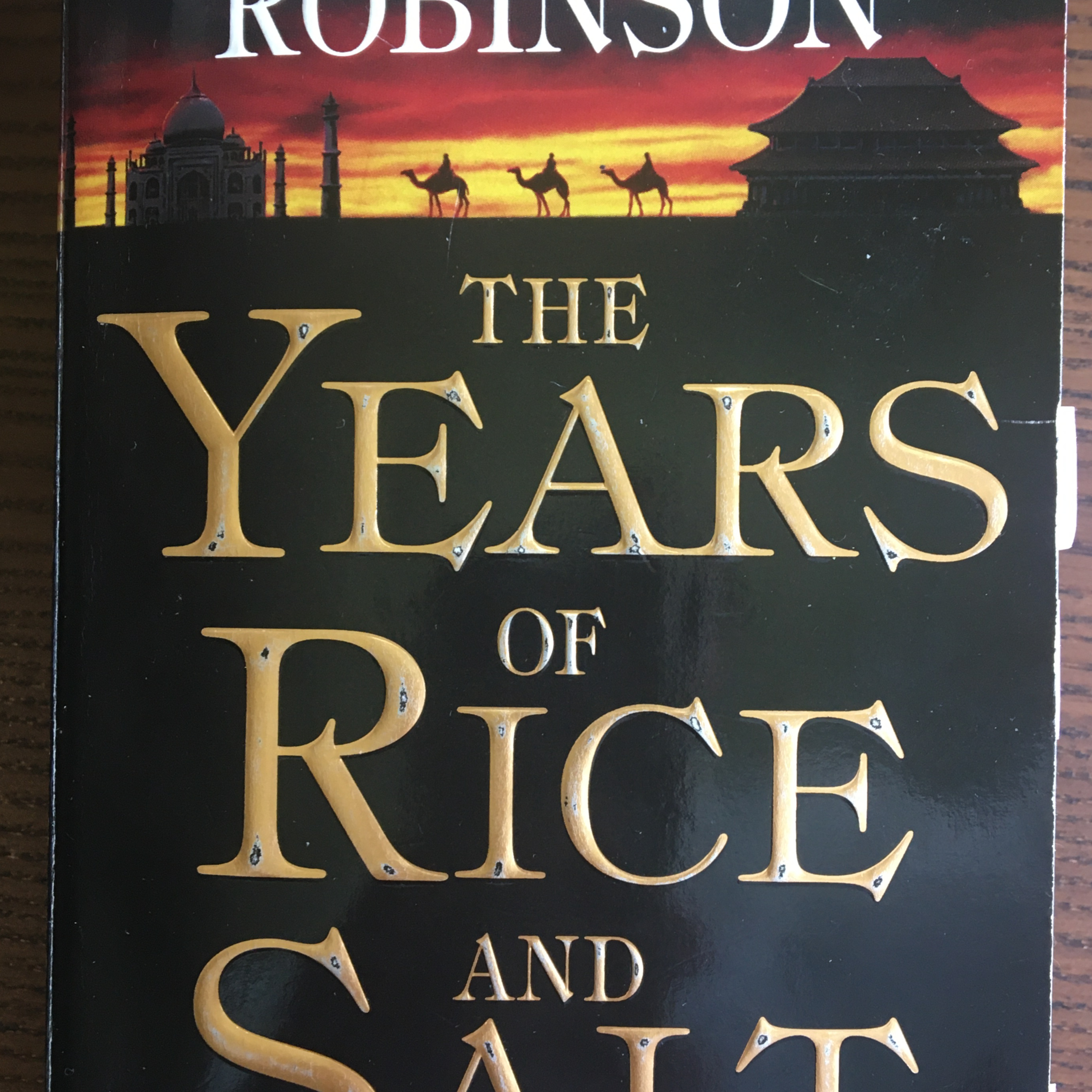
Marooned! on Mars with Matt and HilaryThe Years of Rice and Salt 1: "Awake to Emptiness," Provincializing Europe, History, Modernity, and Structures of FeelingHello! We’re back. Sorry we’re late, but we’re back now, to discuss THE YEARS OF RICE AND SALT, book-by-book.
We recommend you read this book through once already if you’ve never read it before for its own pleasures. It’s a great, great, great book that you should just read and delight in. Then tune into our commentary for a re-read, which I assume is what a lot of you are doing. And in advance, thank you for listening! Matt apologizes in advance for his complete ignorance about Buddhism.
“Awake to Emptiness” f...
2020-06-081h 30
FEM TALKS#3 «Феминизм и академия»: Наташа Тышкевич [университеты, гендерные исследования, харассмент]В этом выпуске вместе с Наташей Тышкевич, редакторкой DOXA и исследовательницей, обсуждаем: — Место феминистских стратегий в Академии; — Порог входа в гендерные исследования и возможность манипулировать гендерным знанием; — Ложный концепт «университета вне политики»; — Харассмент как ограничивающий фактор для женщин в науке и академии.Ссылки:DOXA: https://doxajournal.ru/Статья про соотношение феминизма и академии: https://discoversociety.org/2017/03/01/focus-feminism-in-the-academy-and-beyond/ Статья об академическом феминизме: Judith Stacey, Is Academic Feminism an Oxymoron? https://www.jstor.org/stable/3175510?seq=1 Доклад Насти Дмитриевской «Гендерные исследования в России: картирование силовых полей» https://intermodalterminal.info/feminist-org Статья DOXA о клубе «Ива и Ясень» https://doxajournal.ru/uni/gender_investigation_sfu Интервью с Хансом-Херманом Хоппе https://www.youtube.com/watch?v=GYG6s4xc8Kg&ab_channel=SVTV Интервью с Убермаргиналом https://www.youtube.com/watch?v=AvNvD_7_I-0&ab_channel=SVTVСтатья Эмми Айрлэнд «Чёрный цикл: код для грядущих чисел» https://cyberfemzine.net/black_circuit/ Статья Сэди Плант «Подключённые к матрице: киберфеминистские симуляции» https://cyberfemzine.net/plant_matrix/ Статья Е.Здравомысловой и А. Темкиной «Институциализация гендерных исследований в России» http://ecsocman.hse.ru/text/19168915/ Док. фильм об изнасилованиях в университетах «The Hunting Ground» https://vk.com/videos-177302906?z=video-48713168_456239170%2Fclub177302906%2Fpl_-177302906_-2 Статья Е. Здравомысловой и А. Темкиной «Исследования женщин и гендерные исследования на Западе и в России»: http://ecsocman.hse.ru/data/749/122/1218/017yDRAWOMYSLOWA.pdf Статья о кейсе с фейковыми статьями в журналах по гендерным исследованиям: https://nplus1.ru/blog/2018/10/09/answer-for-plb Статья про харассмент со стороны постколониального теоретика Д. Чакрабарти: https://www.google.ru/amp/s/shortbustoparadise.wordpress.com/2018/02/23/the-university-chicago-is-okay-with-dipesh-chakrabarty-propositioning-a-graduate-student/amp/(Лана, говоря о Дипеше Чакрабарти, указала на то, что он занимается археологией мозга. Это ошибка, т.к. он является постколониальным исследователем, разрабатывающим теорию геологической агентности человека).Рассказ про харассмент со стороны социолога и гендерного исследователя М. Киммела : https://medium.com/@bmcoston/reclaiming-my-fear-i-will-no-longer-stay-silent-about-michael-kimmel-bde8602fee55
2020-01-2852 min
Professores contra o Escola Sem Partido24 - A invenção do OcidenteO Ocidente é uma mentira, mas uma mentira extremamente poderosa, e precisamos lidar com isso.
Participantes:
Luiza Brandão
Diogo Salles
Fernando Pureza (convidado especial)
Cartaz do episódio baseado em duas ilustrações da revista "O Anglo-Saxão", criada em 1849 em Londres com o objetivo de popularizar o termo "anglo-saxão" e uma suposta identidade racial/linguística europeia inerentemente superior às demais (créditos: @erik_kaars, no Twitter). Música de abertura e encerramento: “Tank!”, composição de Yoko Kano, performance de The Seatbelts, direitos reservados a Victor Entertainment.
O PCESP Podcast é um programa mensal sobre política, educação e história, e tudo...
2019-12-051h 12
Professores contra o Escola Sem Partido24 - A invenção do OcidenteO Ocidente é uma mentira, mas uma mentira extremamente poderosa, e precisamos lidar com isso.
Participantes:
Luiza Brandão
Diogo Salles
Fernando Pureza (convidado especial)
Cartaz do episódio baseado em duas ilustrações da revista "O Anglo-Saxão", criada em 1849 em Londres com o objetivo de popularizar o termo "anglo-saxão" e uma suposta identidade racial/linguística europeia inerentemente superior às demais (créditos: @erik_kaars, no Twitter). Música de abertura e encerramento: “Tank!”, composição de Yoko Kano, performance de The Seatbelts, direitos reservados a Victor Entertainment.
O PCESP Podcast é um programa mensal sobre política, educação e história, e tudo...
2019-12-051h 12
كتُبيولوجِي - Kotobiologyمدخل إلى اللافلسفةقبل كم سنة، توصلت إلى حقيقة تحدت كثير من الآراء المسبقة اللي كنت أحملها عن الفلسفة والتفلسف: كتب المقدمات والمداخل الفلسفية مضيعة للوقت والجهد والمال. فبدل ما تؤهل القارئ للدخول في معمعة الفلسفة والفلاسفة -زيما تزعم-، اللي يصير إنه هذي المقدمات تحدّ من آفاقه وتعطيه تصورات وانطباعات مغلوطة عن ماهية كل واحد فيهم. مو بس في سالفة تقييد النصوص وتنميطها، لا. السالفة تتعدى الأمر إلى اختزال العملية الفلسفية وقصرها على انطباعات وآراء مجردة من سياقاتها. والحقيقة، ربما من الأصح تسمية هالكتب بالمخارج بدل المداخل.فلسفة ما بين السطور – آرثر ميلزرThe Cambridge Companion to Machiavelliالأمير – ماكيافيللي (ترجمة ليو ألفاريز)مقدمة قصيرة جدًا للحداثة - كريستوفر باتلرالمعنى والفهم في تاريخ الأفكار – كوينتن سكينرProvincializing Europe: Postcolonial Thought and Historical Difference - Dipesh Chakrabartyصعود وسقوط الرطانة الفلسفية – إيريك شويتزغيبلانضموا إلى مجتمع كتبيولوجي على باتريون.وتابعونا على إكس، وانستغرام، وتيك توك، وحتى سناب شات.ولتجربة إضافية، شاهدوا كتبيولوجي على يوتيوب.Become a supporter of this podcast: https://www.spreaker.com/podcast/ktubywlwji-kotobiology--6402808/support.
2019-10-2656 min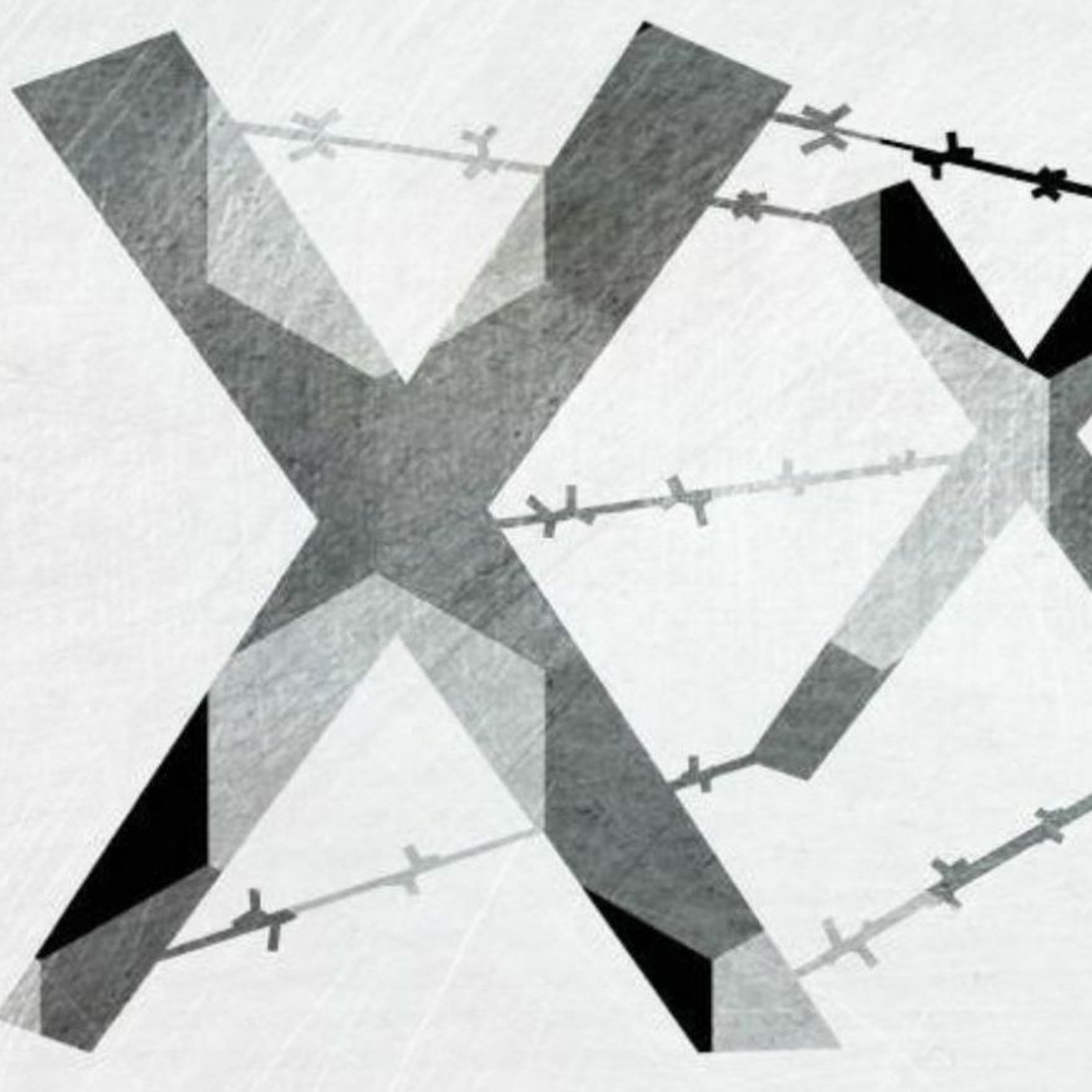
UCHRI PodcastTalkbits on Civil War: There May be a Rebarbarization of the WorldIn this edition of UCHRI’s Talkbits on civil war, Dipesh Chakrabarty reflects on the politics of survival, flourishing, and postcolonial worldmaking in a time of accelerated planetary destruction.
2019-10-0300 min
Helle PankeDipesh Chakrabarty: Rethinking Working ClassPostcolonial Perspectives on a Revolutionary Concept
Podiumsdiskussion mit Prof. Dipesh Chakrabarty (University of Chicago)
Moderation: Felix Fiedler
[English below]
Der indische Historiker Dipesh Chakrabarty ist einer der profiliertesten Theoretiker postkolonialer Kritik. In Europa wurde vor allem seine Studie “Provincializing Europe” breit diskutiert. Chakrabarty untersucht darin, wie “Europa im historischen Wissen als stillschweigender Maßstab fungiert”: Die politischen Begriffe und Bilder des “alten Kontinents” beherrschen noch immer den globalen Diskurs, und schreiben so die koloniale und imperialistische Macht Europas fort: Gemessen am europäischen Standard von Bürgerlichkeit, Aufklärung, Liberalismus, Staat und Kapitalismus erscheinen nicht-europäische Gesellschaften meist als defizitär und zurückgeblie...
2019-09-011h 34
WB202: The Critical Inquiry PodcastBruno Latour and Dipesh Chakrabarty: Geopolitics and the “Facts” of Climate ChangeBruno Latour and Dipesh Chakrabarty visited WB202 to discuss new “questions of concern” and the fight over “facts” and climate change in the world after Trump’s election. Latour and Timothy Lenton’s “Extending the Domain of Freedom, or Why Gaia Is So Hard to Understand” appeared in the Spring 2019 issue of Critical Inquiry. Chakrabarty’s “The Planet: An Emergent Humanist Category” is forthcoming in Autumn 2019.
https://critinq.wordpress.com/wp-content/uploads/2019/04/latour_podcast.mp3
You can also listen and subscribe to WB202 at:
iTunes
Google Play
TuneIn
2019-04-111h 07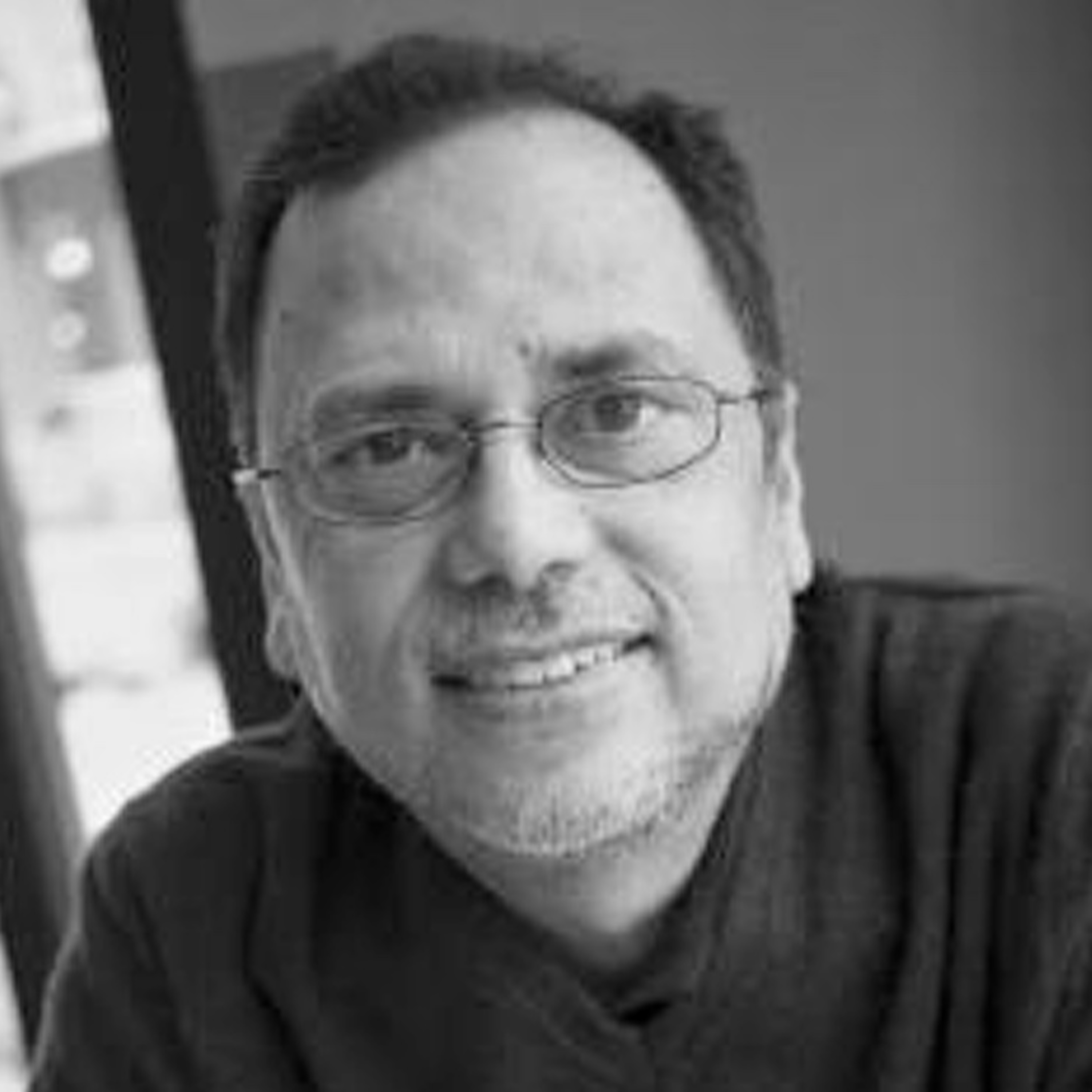
cliocastcliocast #2: Dipesh ChakrabartyDipesh Chakrabarty, Lawrence A. Kimpton Distinguished Service Professor of History, South Asian Languages and Civilizations an der University of Chicago im Gespräch mit Ariane Tanner, Historikerin und Texterin aus Zürich und Gesine Krüger, Professorin für Geschichte der Neuzeit und Aussereuropäische Geschichte an der Universität Zürich. Aufgezeichnet am 22. November 2018 in Bern. (Sprache: englisch)
2018-12-2026 min
WB202: The Critical Inquiry PodcastDipesh Chakrabarty: Looking Back to “The Climate of History: Four Theses”Consulting Editor Dipesh Chakrabarty stopped by the office to discuss his 2009 Critical Inquiry essay, the emergence of the Anthropocene, the end of the world, and the future of theory. Listen to the podcast and visit our website to read “The Climate of History: Four Theses” (Winter 2009).
https://critinq.wordpress.com/wp-content/uploads/2018/12/chakrabarty_podcast.mp3
You can also listen and subscribe to WB202 at:
iTunes
Google Play
TuneIn
2018-12-0446 min
cliocastCliocast 02: Dipesh ChakrabartyCliocast 02: Dipesh Chakrabarty
Ein Interview von Ariane Tanner und Gesine Krüger
Bern, 22.11.2018
Cliocast ist eine Podcast-Serie von Gesprächen mit Historikerinnen und Historikern über ihre neuen Bücher. In den rund 30minütigen Beiträgen können der historische Gegenstand und die zentralen Thesen genauso zur Sprache kommen wie methodische Herausforderungen, die Entstehungsbedingungen und die aktuelle Rezeption und Diskussion der Bücher. Cliocast versteht sich nicht als Rezensionsorgan, sondern will Gesprächsplattform für den Austausch über geschichtswissenschaftliches Arbeiten sein. Mit Cliocast präsentiert infoclio.ch ein neues Podcast-Format für die Geschichtswissenschaften in der Schweiz.
Die Podcasts werden über infoclio.c...
2018-12-0426 min
First Draft with Sarah EnniSomaiya DaudSomaiya Daud, debut author of YA sci-fi book MIRAGE, was the very first author I ever interviewed for First Draft Podcast. We had a lot to catch up on since then, so listen now to hear about Somaiya's bumpy path to publication, the way race plays into our concepts of the future and, of course, Star Wars! Somaiya Daud Show Notes Somaiya Daud's first interview with First Draft Podcast J. R. R. Tolkien William Gibson Oliver Twist by Charles Dickens Emma by Jane Au...
2018-08-281h 11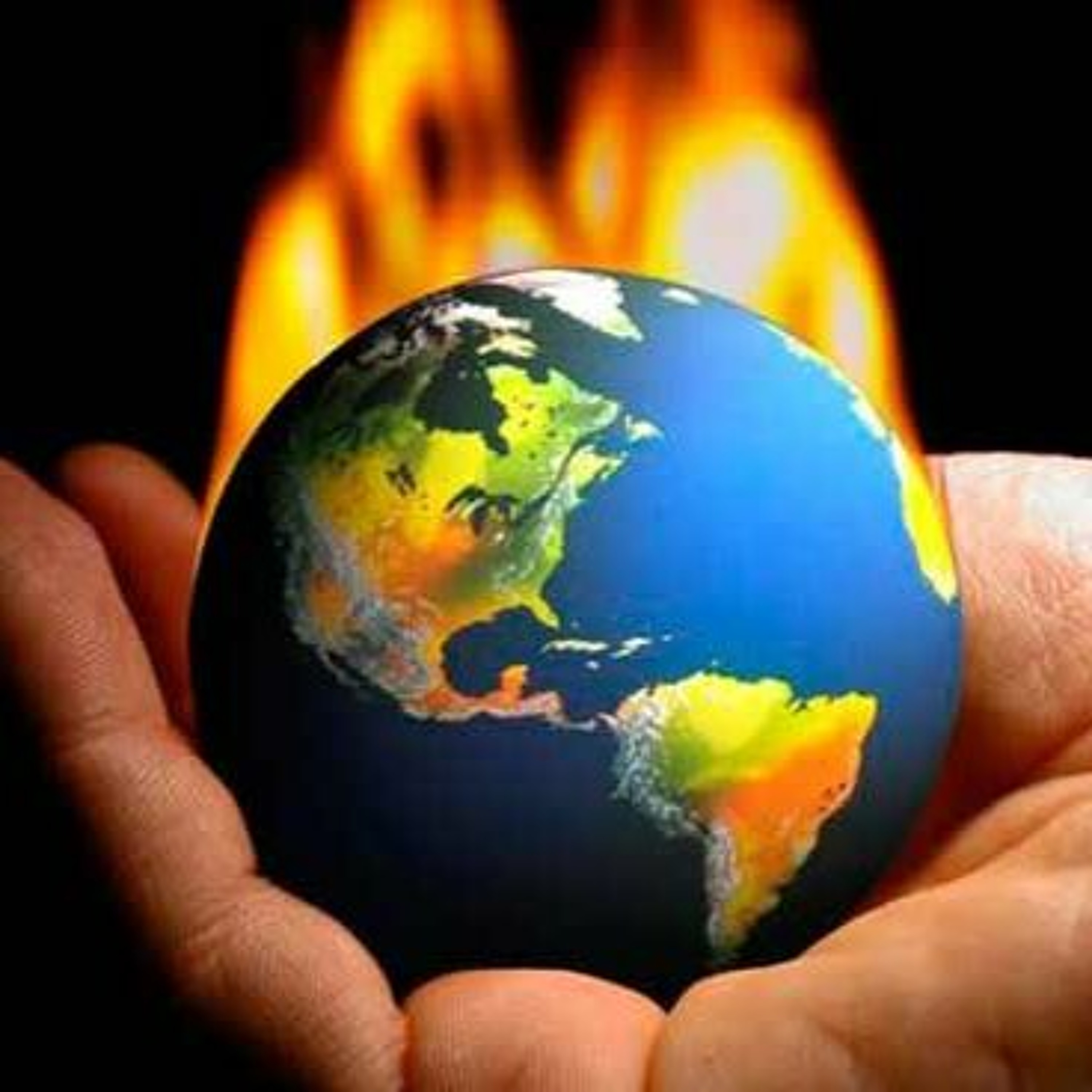
Scholars At PlayEpisode 10 - The Fate of the World - The Anthropocene and EcocriticismTed Dawson joins Derek, Kyle and Terrell to talk about what "The Anthropocene" and "ecocriticism" are, why they matter, and what we need to do to save the world. Well, at least in "The Fate of the World."
--------------
Objects Discussed
Texts:
- "The Climate of History: Four Theses" (Dipesh Chakrabarty, 2009)
- "Greenshifting Game Studies" (Hans-Joachim Backe, 2014)
- "Live in Your World, Play in Ours”: Video Games, Critical
Play, and the Environmental Humanities (Megan Condis, 2015)
- "What's the Fate of the World?" (Graham Smith, 2010)
Games:
- Fate of the World (Red Redemption, 2011)
- Thunderbird Strike (Dr. Elizabeth LaPensée, 2017)
--------------
Hos...
2018-04-051h 25
Cultures of EnergyEp. #28 - Fredrik Albritton JonssonYour co-hosts wonder why coal seems so sinister and they're pretty sure it has something to do with all those Santa-related threats. Then (8:51) we welcome University of Chicago environmental and intellectual historian Fredrik Albritton Jonsson to the podcast to discuss his two remarkable books, Enlightenment's Frontier: The Scottish Highlands and the Origins of Environmentalism (Yale, 2013) and Green Victorians: The Simple Life in John Ruskin's Lake District (co-authored with Vicky Albritton; U Chicago, 2016). Fredrik takes us back to mid 18th century Scotland and 19th century England to discuss the deep historical roots of contemporary concerns about fuel, growth and the n...
2016-08-121h 07
Cultures of EnergyEp. #19 - Dipesh ChakrabartyAfter the usual nonsense, we welcome to the podcast this week (5:11) Dipesh Chakrabarty, theorist and historian extraordinaire from the University of Chicago. Dipesh recounts an amusing encounter from his visit to Rice that helps prove that the 1950s dream of limitless plenitude is still very much alive (and not only in Houston). We then return to his seminal/ovular essay, "The Climate of History," and Dipesh shares his thoughts on how he might augment his four theses with a discussion of humanity's ecological overshoot and of the deep connection between geology and biology. Then we talk about why the...
2016-06-101h 01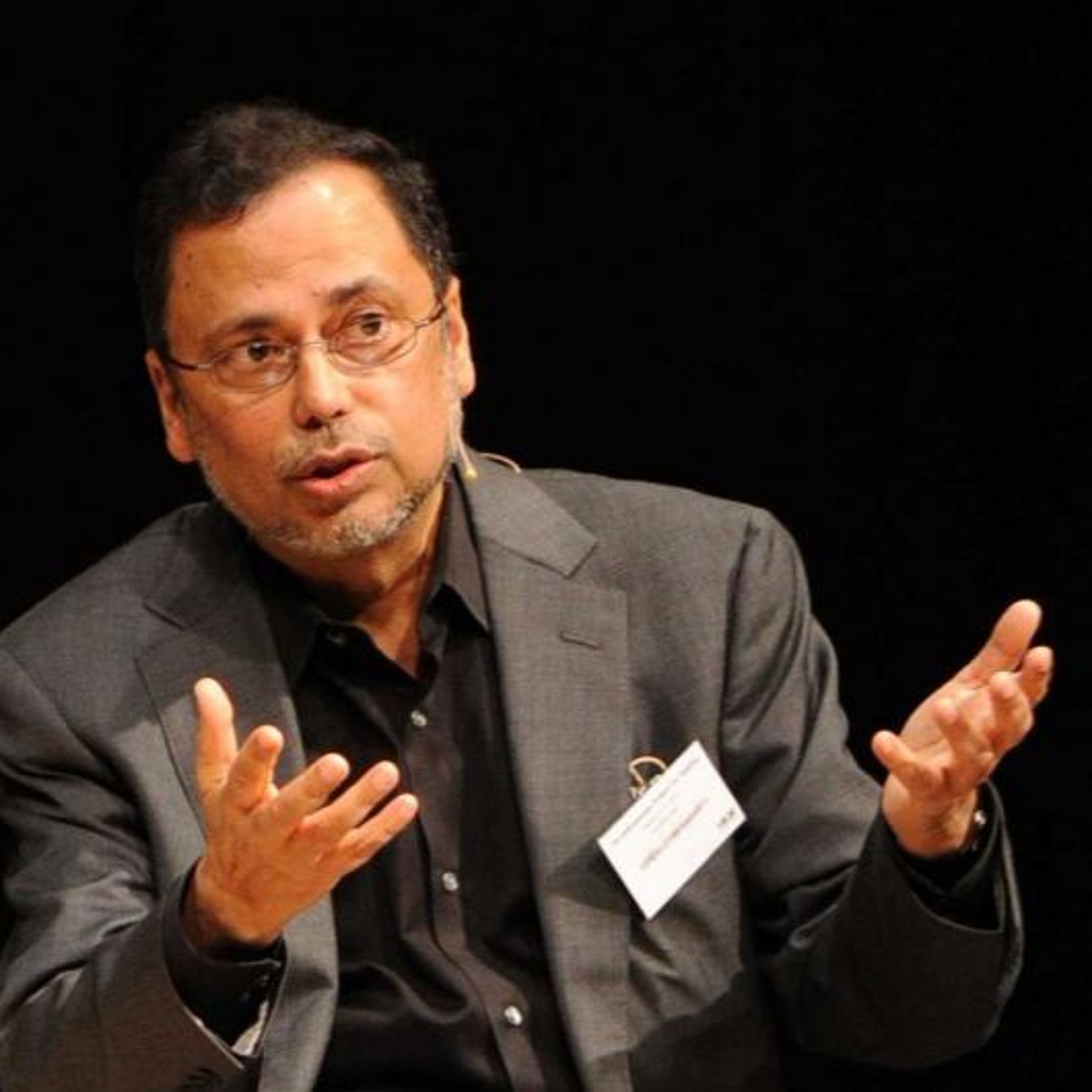
HKW PodcastDictionary of Now #2 | Dipesh Chakrabarty & Eyal Weizman – FORUMDictionary of Now #2 - Dipesh Chakrabarty & Eyal Weizman – FORUM
April 11, 2016 7pm
Lectures, discussion
Within what forums can the political evolve today? In the face of post-democratic mechanisms of globalization, the crisis of the national state and increasing restrictions on human rights and civil liberties, there have been shifts in the places and practices of social negotiation. There is an ever-growing distance between the spaces of global politics and the networks of local political initiatives. Departing from the idea of the Greek polis and Hannah Arendt's concept of political acting as free, public negotiation, the historian Dipesh Chakrabarty and the architect Ey...
2016-04-222h 24
The SEI Podcast SeriesClimate + Capital: A conversation with Prof Dipesh ChakrabartyThursday 23 July 2015A conversation with Professor Dipesh Chakrabarty (University of Chicago, Visiting Fellow Sydney Environment Institute, University of Sydney)‘If, indeed, globalization and global warming are born of overlapping processes, the question is, How do we bring them together in our understanding of the world?’In his pathbreaking essays on ‘Climate and Capital’, Dipesh Chakrabarty has opened up the exploration of the implications of the science of climate change for historical and political thinking. In this conversation, professors Glenda Sluga and David Schlosberg take up the themes of Dipesh Chakrabarty’s work, to ask: What value does history have in tackling a...
2015-08-271h 31
KonfliktKlädindustrins svåra samveteOm den globala textilindustrin ett år efter katastrofen i Bangladesh. 1 138 människor dog och det skulle bli en vändning - men hur mycket har egentligen hänt? Blir det bättre längst nere vid näringskedjan slut, eller är det fel på hela det globala systemet? Hör de svimmande arbetare som sätter ihop våra gympaskor. Hör om H&M och om små framsteg från Kambodja, Yale och Bangladesh. Lyssna på alla avsnitt i Sveriges Radios app. Det som hände i Rana Plaza skulle bli en väckarklocka för den globala kl...
2014-04-1955 min
Southern Asia Events"The Empire and the Birth of Historical Research in India" (audio) Dipesh Chakrabarty is the Lawrence A. Klimpton Distinguished Service Professor of History at the University of Chicago.
2010-10-0157 min![CHIASMOS: The University of Chicago International and Area Studies Multimedia Outreach Source [audio]](http://chiasmos.uchicago.edu/chiasmosPodcastLogo_05_144.jpg)
CHIASMOS: The University of Chicago International and Area Studies Multimedia Outreach Source [audio]"The Empire and the Birth of Historical Research in India" Dipesh Chakrabarty is the Lawrence A. Klimpton Distinguished Service Professor of History at the University of Chicago.
2010-10-0157 min![CHIASMOS: The University of Chicago International and Area Studies Multimedia Outreach Source [audio]](http://chiasmos.uchicago.edu/chiasmosPodcastLogo_05_144.jpg)
CHIASMOS: The University of Chicago International and Area Studies Multimedia Outreach Source [audio]"Between Globalization and Global Warming"A talk by Dipesh Chakrabarty, Lawrence A. Kimpton Distinguished Service Professor of History, South Asian Languages and Civilizations and the College, University of Chicago and David Archer, Professor in the Department of Geophysical Science at the University of Chicago on the global climate crisis. As part of the quarterly Workshop on the Global Environment, historian Dipesh Chakrabarty and geophysicist David Archer meet to discuss human-environmental relationships. Archer served as discussant of Chakrabaty's presentation titled "Between Globalization and Global Warming: The Long and the Short of Human History".
2010-05-121h 13![CHIASMOS: The University of Chicago International and Area Studies Multimedia Outreach Source [video]](http://chiasmos.uchicago.edu/chiasmosPodcastLogo_05_144.jpg)
CHIASMOS: The University of Chicago International and Area Studies Multimedia Outreach Source [video]"Between Globalization and Global Warming" (video)A talk by Dipesh Chakrabarty, Lawrence A. Kimpton Distinguished Service Professor of History, South Asian Languages and Civilizations and the College, University of Chicago and David Archer, Professor in the Department of Geophysical Science at the University of Chicago on the global climate crisis. As part of the quarterly Workshop on the Global Environment, historian Dipesh Chakrabarty and geophysicist David Archer meet to discuss human-environmental relationships. Archer served as discussant of Chakrabaty's presentation titled "Between Globalization and Global Warming: The Long and the Short of Human History".
2010-05-121h 13![CHIASMOS: The University of Chicago International and Area Studies Multimedia Outreach Source [audio]](http://chiasmos.uchicago.edu/chiasmosPodcastLogo_05_144.jpg)
CHIASMOS: The University of Chicago International and Area Studies Multimedia Outreach Source [audio]"Empire, Ethics, and the Calling of History"A talk by Dipesh Chakrabarty, Lawrence A. Kimpton Distinguished Service Professor of History, South Asian Languages and Civilizations and the College. Part of the Nicholson Center for British Studies 2007-2008 Lecture Series, "Making the Secular: Lectures in the Formation of Knowledge".
2008-01-1853 min![CHIASMOS: The University of Chicago International and Area Studies Multimedia Outreach Source [video]](http://chiasmos.uchicago.edu/chiasmosPodcastLogo_05_144.jpg)
CHIASMOS: The University of Chicago International and Area Studies Multimedia Outreach Source [video]"Session 3 (Futures) - History Textbooks and the Profession: Comparing National Controversies in a Globalizing Age" (video) A symposium panel featuring the following papers: "School Textbooks as Collective Memory and Social Design: Some Thoughts on Developing a World Consciousness" — Hanna Schissler (Georg Eckert Institute for International Textbook Research, Braunschweig, Germany); "Historical Reconciliation: A Tool for Conflict Resolution" — Elazar Barkan (Columbia University); Discussant: Dipesh Chakrabarty, University of Chicago. This one-day symposium was convened to compare the controversies surrounding historical texts that emerged during the last fifteen to twenty years with the onset of the post-Cold War era and the acceleration of globalization, multi-culturalism and the neo-liberal order. Sponsored by the Department of History, Center for East Asian Studies, Cent...
2007-05-041h 51![CHIASMOS: The University of Chicago International and Area Studies Multimedia Outreach Source [audio]](http://chiasmos.uchicago.edu/chiasmosPodcastLogo_05_144.jpg)
CHIASMOS: The University of Chicago International and Area Studies Multimedia Outreach Source [audio]"Session 3 (Futures) - History Textbooks and the Profession: Comparing National Controversies in a Globalizing Age" A symposium panel featuring the following papers: "School Textbooks as Collective Memory and Social Design: Some Thoughts on Developing a World Consciousness" — Hanna Schissler (Georg Eckert Institute for International Textbook Research, Braunschweig, Germany); "Historical Reconciliation: A Tool for Conflict Resolution" — Elazar Barkan (Columbia University); Discussant: Dipesh Chakrabarty, University of Chicago. This one-day symposium was convened to compare the controversies surrounding historical texts that emerged during the last fifteen to twenty years with the onset of the post-Cold War era and the acceleration of globalization, multi-culturalism and the neo-liberal order. Sponsored by the Department of History, Center for East Asian Studies, Cent...
2007-05-041h 51